FIRST ENCYCLICAL: Benedict XVI’s first encyclical is ready to go.Page 3

Miracle spinal cure leads to sainthood
The miraculous cure of a quadriplegic not expected by her doctors to live was the second miracle that led to the canonisation of Chilean Jesuit Fr Alberto Hurtado by Pope Benedict XVI in Rome last Sunday.
Father Hurtado died in 1952 and was proclaimed blessed by Pope John Paul in 1994.
According to a 390-page long report sent by the Archdiocese of Santiago to the Vatican’s Congregation for the Cause of the Saints in 1998, an unnamed student suffered a severe spinal cord injury after a car accident.
The young woman’s doctors said her spine was completely severed, paralysing her from the neck down. The family prayed to Blessed Alberto Hurtado and after 23 days in the hospital, she had totally recovered and went back to a normal life.
“We are satisfied because this is a ‘zero chance of failure’ case,” said Jesuit Father Jaime Correa at the time, official Postulator of Father Hurtado’s cause.
“The report is impeccable: it includes several MRI tests and a comparative study of 243 similar cases in the US, and they all show that only five per cent experience a partial recovery after several years of therapy,” Father Correa said.
Saint Alberto’s life: Vista 2-3
Fatherhood books sellout
Large numbers of books on fatherhood and parenting offered to readers by The Record have sold-out within days of reviews appearing in the paper.
The books, by US educator and parenting specialist James Stenson have been so popular that all copies of one title were sold by the Monday after the review appeared on that weekend.

All copies of the first book, Successful Fathers - powerful ways


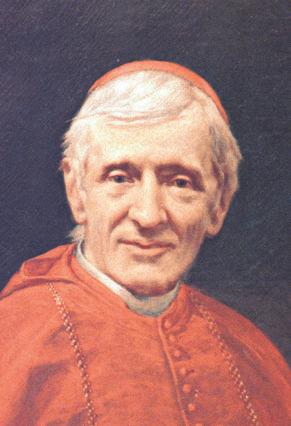
‘Breakthrough’
China, Vatican, reach possible quiet accord on bishops
From Cape students with love
 ■ By Carol Glatz
■ By Carol Glatz
ROME (CNS) - The recent ordinations of Chinese bishops with the explicit approval of both the Vatican and Beijing were “a breakthrough” in relations between the two sides, said a Hong Kong bishop.
Although officially China and the Vatican have no diplomatic ties, the recent ordinations of at least two Chinese bishops represent signs that things “are moving,” said Hong Kong Bishop Joseph Zen Ze-kiun.
Bishop Paul He Zeqing’s ordination as auxiliary bishop of Wanxian on October 18 was the most recent.
According to AsiaNews, an Italian missionary news agency, Bishop He was the third bishop to have been consecrated with Vatican approval into the official or government-supported church in China.
The Wanxian bishop told people attending the ceremony that the ordination was taking place with the approval of the Vatican, the agency said on October 19.
Bishop Zen, in Rome attending the October 2-23 Synod on the Eucharist, told CNS on October 21 that the last two ordinations have been unique in that the government did not pressure the church leaders
Continued on Page 2
10,000-plus hit Sydney streets
A eucharistic procession to mark the end of the Year of the Eucharist in Sydney drew large crowds
■ By Marilyn Rodrigues of The Catholic Weekly
There were no special performances, celebrity guest speakers, or anything novel on offer, but Jesus Christ; which brought more than 10,000 people to the streets of Sydney to faithfully accompany the Blessed Sacrament in a public procession to mark the end of
PREPARING FOR TEEN YEARS
The way many describe it, the teen years are nothing short of anarchy. But it doesn’t have to be that way, says James Stenson. The key is in laying the foundations early.

the Year of the Eucharist. “Their response showed that in the hearts of Catholics there is this great love and devotion to the Blessed Eucharist, not only in turning up, but in the whole prayerful character of the procession,” said acting administrator of the archdiocese, Bishop Julian Porteous.
“People were so prayerful the whole way along, they weren’t just walking along talking or looking around; so many people were deep in prayer throughout.
“I think people were just so ecstatic with joy and it was a great witness to the love that people have towards the Blessed Eucharist.”
An Ave Maria was taken up across Lang Park as the ever-swell-
ing crowd awaited the emergence of the Blessed Sacrament from St Patrick’s Church last Sunday afternoon – people had begun arriving up to an hour before the procession was due to commence. They knelt or applauded when the acting administrator of the archdiocese, Bishop Julian Porteous, finally emerged holding the gold monstrance aloft under a golden canopy in the bright October sunshine.
Also leading the procession was Cardinal Edward Clancy, Bishop Anthony Fisher and Melkite priests with their bishop, Bishop Issam Darwish, priests of the archdiocese and seminarians. The archbishop of Sydney, Cardinal George Pell,
was in Rome attending the bishops’ synod. Also accompanying the procession were the relics of St Margaret Mary, who urged the Catholic world to revere the Sacred Heart of Jesus, and has traditionally inspired many to devotion to the Eucharist.
The reverent pilgrims sang hymns and chanted litanies as the procession wound its way across the city to Macquarie St and on to St Mary’s Cathedral for adoration and solemn benediction.
Such was its size that it took an hour for the rear of the procession to leave Lang Park, even with the streets closed off by police.
People pushed prams and wheel
CHURCH KEEPS GROWING

soon to be on the Web Thursday October , Perth, Western Australia ● $1 Western
Australia’s Award-winning Catholic newspaper
The Parish. The Nation. The World.
INDEX Local news - Page 6 I say, I say - Page 10 The World - Pages 8-9 Currents - Page 7 Classifieds - Page 11
VISTA 1
Page 4
The latest statistical snapshot of the Church throughout the world indicates that overall numbers of the faithful, and those of priests, have risen again.
Continued on Page 4 Continued on Page 4
Successful Fathers, by James Stenson
WA gift: Emma Ferguson, at front with Fr Hadi, and organiser Jack Robinson, at right, after presenting a donation for Fr Hadi’s Bali Church raised by fellow students of Our Lady of the Cape school in Dunsborough. Story: Page 6
MIRACLE TO AID NEWMAN C ANONISATION? TO CANONISATION? Page 2
Cure after Newman prayer
■ By Simon Caldwell
Catholic officials said the cure of a Boston deacon could be the miracle that paves the way for the beatification of a 19th-century English cardinal.
The unnamed deacon from Boston is said to have made a complete recovery from a crippling spinal condition after praying to Cardinal John Henry Newman, the Anglican vicar who shocked Victorian England with his conversion to the Catholic faith.
The cardinal’s cause was opened in 1958 in Birmingham, England, where he spent much of his life, and he was declared venerable in 1991. Claims of the miracle were announced on October 17 at Rome’s English College.
Father Paul Chavasse, the postulator of Cardinal Newman’s cause, said that a couple of years ago officials received a
report of the cure of the Boston deacon. “I am not at liberty to give the name of this man, who had been suffering from severe spinal problems and who has now recovered as a result of the intercession of the Venerable John Henry Cardinal Newman,” Father Chavasse said. “This man has now returned to full health and mobility. I have spoken with him and the doctors who treated him, and they have no explanation for his cure.
“In fact, one even said to me: ‘If you want an explanation, ask God,’” the priest said.
Father Chavasse added that a tribunal in the Archdiocese of Boston had opened on June 25 to investigate the alleged miracle; he said it would finish its work in early February.
Father Chavasse asked for prayers that the miracle would be approved by the tribunal and recognised by authorities in Rome.
In Boston, members of the tribunal could not be reached for comment.
Cardinal Newman, the oldest of six children, was born on February 21, 1801, in London.
In 1824 he was ordained an Anglican priest. He later founded the Oxford Movement, which gave rise to today’s Anglo-Catholic wing of the Church of England.
At age 44, after a series of clashes with Anglican bishops, he joined the Roman Catholic Church. Some Catholics regarded him with distrust, and his attempts to open an Oratory at Oxford University and a university in Dublin, Ireland, were sabotaged by his Catholic enemies.
However, his talent as a philosopher and a theologian attracted attention, and Pope Leo XIII named him a cardinal in 1879. When Cardinal Newman died in 1890 at the age of 89, virtually the whole Christian world mourned him. - CNS
Agreement on bishops signals
Four empty chairs, four missing bishops - final solution may be closer, but not there yet
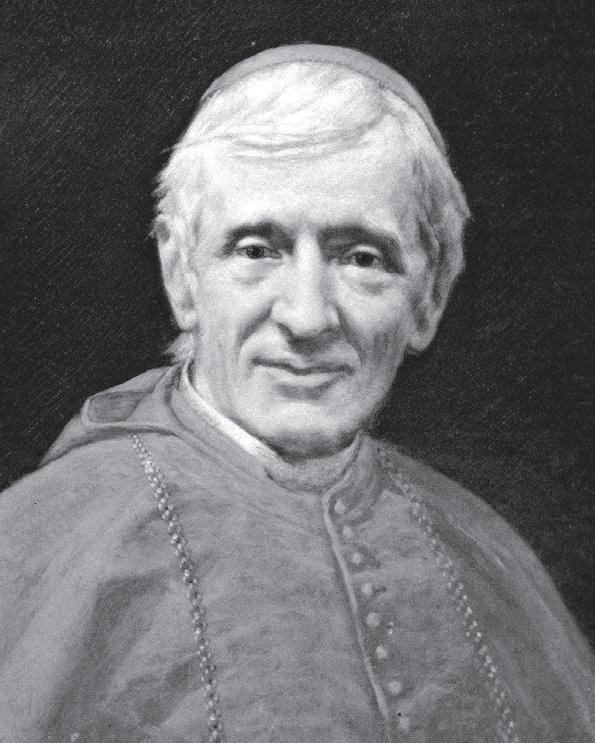
“As far as I know, first came the appointment by the Pope, and then the local bishop tried to help this candidate be elected by the clergy, by the people, and then the government has no choice but to recognise, to accept, to approve” that bishop, he said.
“I hope the government draws conclusions from the facts. It’s futile to be rigid on their position, because they must see they’re losing control,” he said.
Meanwhile, Pope Benedict XVI lamented the absence of four mainland Chinese bishops he had invited to attend the Synod of Bishops on the Eucharist.
In an October 23 homily at a Mass in St Peter’s Square marking the end of the synod, the Pope noted that synod participants felt the absence of the Chinese bishops “with deep sadness.”
Just before the opening of the October 2-23 synod, the invited Chinese bishops told UCA News, an Asian church news agency based in Thailand, that the Chinese government did not issue them passports, so they could not travel. Four chairs remained empty in the synod hall for the entire synod to mark their absence.
In his homily, the Pope said he wished to “assure the Chinese bishops that we are close to them
The Record
The Parish. The Nation. The World.
EDITOR PETERROSENGREN Lettersto:cathrec@iinet.net.au
JOURNALISTS JAMIEO'BRIEN jamieob@therecord.com.au
BRONWENCLUNE clune@therecord.com.au
MARKREIDY reidyrec@iinet.net.au
CAROLEMCMILLEN administration@therecord.com.au inc.sales/subscriptions
ADVERTISING CHRISMIZEN advertising@therecord.com.au
PRODUCTION
DEREKBOYLEN production@therecord.com.au
587NewcastleSt,Leederville Post:POBox75,Leederville,WA6902
Tel:(08)92277080
Fax:(08)92277087
TheRecordisaweeklypublicationdistributedthroughparishesofthe
in prayer, and to their priests and faithful.”The synod delegates also expressed their solidarity with the Catholic communities in China in an October 22 letter they sent to the four bishops.
“In the Lord Jesus, we hope that all the ecclesial communities in China may flourish in their listening to the word, in celebrating the paschal mystery and in the generous service to the brothers,” it said.
The letter said the bishops “wish to soon find paths to make full communion more visible” between the two churches in China.
Since the 1950s, China has had a government-controlled Catholic Church that elects its own bishops

with government approval and initially was forced to reject ties to the Vatican. An underground church has always maintained loyalty to the Vatican.
Bishop Zen has said that up to 85 per cent of the governmentapproved bishops have reconciled with the Vatican and that, in many regions of China, Catholics from the two churches intermingle at the parish level.
China has said that before it would normalise diplomatic relations the Vatican must break its ties to Taiwan and not interfere in the naming of bishops.
For some time the Vatican has made it clear that it would be willing to move its embassy from Taiwan to Beijing if diplomatic relations were established.
In an October 19 interview with
Vatican Radio, Bishop Zen said that people who belong to the two churches “have the same beliefs, and they are all Catholics.”
“There is nothing confrontational between the two churches,” he added.
“The difference is those who are underground, they refuse to collaborate with the government because they say we cannot accept to be separate from the Holy See. And those in the official church, they believe that there could be a compromise,” he said.
“In general they coexist peacefully, because the division is not created by the Catholics, it’s created by the government.
“They are both victims of the government,” he told Vatican Radio.
- CNS




Page 2 October 27 2005, The Record
OFFICE MANAGER
MANAGER
diocesesofWesternAustraliaandbysubscription. Why not stay at STORMANSTON HOUSE 27 McLaren Street, North Sydney Restful & secure accommodation operated by the Sisters of Mercy, North Sydney. • Situated in the heart of North Sydney and short distance to the city • Rooms available with ensuite facility • Continental breakfast, tea/coffee making facilities & television • Separate lounge/dining room, kitchen & laundry • Private off-street parking Contact: Phone: 0418 650 661 or email: nsstorm@tpg.com.au VISITING SYDNEY A LIFE OF PRAYER ... are you called to the Benedictine life of divine praise and eucharistic prayer for the Church? Contact the: Rev Mother Cyril, OSB, Tyburn Priory, 325 Garfield Road, Riverstone, NSW 2765 www.tyburnconvent.org.uk TYBURN NUNS Year of the Eucharist Holy Hour Exposition, Vespers & Benediction Sunday evenings 6.30pm – 7.30pm St Joseph’s Priory Church Treasure Road Queens Park Holy Hour Norbertine Canons The Parish. The Nation. The World. CRUISING • FLIGHTS • TOURS Live your travel dream Personal service and experience will realise your dream Live your travel dream ® A division of Interworld Travel Pty Ltd Lic No.9TA796 Est 1981 200 ST.GEORGE’S TERRACE,PERTH,WA 6000 TEL 61+8+9322 2914 FAX 61+8+9322 2915 email:admin@flightworld.com.au www.flightworld.com.au Michael Deering Enquire about our Cashback Offer* * Conditions apply MANNING & ASSOCIATES OPTOMETRISTS Contact Lens Consultants Mark Kalnenas (B. optom) Grove Plaza, Cottesloe 9384 6720
possible China ‘breakthrough’
keep the
approval
secret,
Continued from page 1 to
Vatican’s
a
“so I think this is a breakthrough.”
Official saint? An apparently miraculous cure of a deacon in the US could lead to the long-awaited canonisation of England’s most famous convert, Cardinal John Henry Newman.
Photo: CNS
New encyclical to be on love and truth
Pope Benedict XVI has finished writing his first encyclical and is expected to release it in early December, Vatican sources said.
The sources told Catholic News Service on October 20 that the encyclical was a 46-page spiritual meditation focusing in large part on “eros” (love) and “logos” (the word) and their relationship to the person of Christ.
The Pope worked on the encyclical during his summer stay at the papal residence outside Rome. The text was being translated into various languages, including English, the sources said.
In two articles written before his election and published in a recent issue of the magazine Communio, Pope Benedict wrote about the unity of the word and love, as personified in Christ. He highlighted the importance of the personal encounter with Christ, which stirs up love, and said love of God helps
 Pope Benedict XVI
Pope Benedict XVI
define the correct idea of human autonomy.
He also wrote that Christ as “logos made flesh” implied reconciliation between supernatural revelation and reason.
- CNS
Tsunami response ‘shows respect for religion’
VATICAN CITY (CNS) -The solidarity and cooperation shown by people of different religions after the Asian tsunami disaster can herald new respect for religion in an increasingly secularised world, said Archbishop Michael Fitzgerald, president of the Pontifical Council for Interreligious Dialogue. “At a time when aggressive secularism would seem to be on the increase and respect for basic human values often appears to be on the decline, such cooperation among people of different religions can bring about a new respect for religion in today’s world,” he said in his annual letter to Hindus celebrating Diwali, the Hindu celebration, observed on November 1 this year.
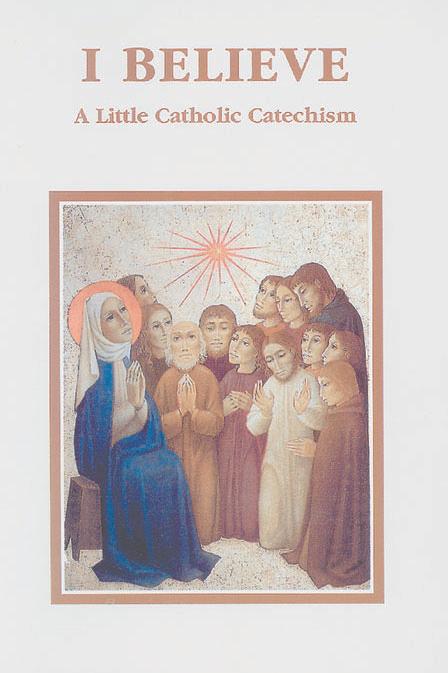
Over 3million copies distributed world wide

“I Believe”–ALittle Catholic Catechism
New edition revised and extended in collaboration with the Vatican’s Congregation of the Clergy
OVER 75% SOLD
*
TThis beautifully illustrated book is an introduction to the basics of the Catholic Faith and is addressed above all to families, but could also serve as a basic text for laity, priests and religious involved in religious education. The publication of this book is a response to the 'growing demand' for a compact introduction to the full Catechism of the Catholic Church. The book has met with 'great interest' among the faithful and is aimed at young people and adults.
Inspiring illustrations give this catechism an added dimension to help convey the spirit of the Gospel along
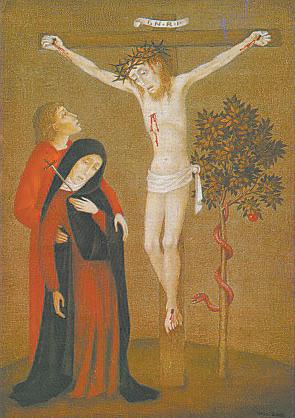
BEAUTIFULLY ILLUSTRATED THROUGHOUT Just $10.00 a
copy
An overwhelming success in Australia with the previous edition of 20,000 copies selling out in less than 12 months.
with its message. The catechism is 208 pp and measures 210mm by 148mm. The first part of the book is based upon the Apostles Creed. Each article of the Creed is explained in a separate chapter and illustrated with examples from the Bible. The second part is devoted to the Sacraments, the life of Jesus, prayer in the Christian life and an explanation of the Lord's Prayer. The book is based on the universal Catechism and has been approved by the Catholic Church. A lovely gift idea and every copy you buy enables us to send more copies overseas to those who are hungry for the Word of God.


OrderForm: “I Believe” - ALittle Catholic Catechism
Send to: Aid to the Church in Need, PO Box 6245 Blacktown DC NSW2148
Phone/Fax No: (02) 9679-1929 E-mail: info@aidtochurch.org Web: www.aidtochurch.org
AID TO THE CHURCH IN NEED … a Catholic charity dependent on the Holy See, providing pastoral relief to needy and oppressed Churches
RETIREMENT NEVER LOOKED SO GOOD.
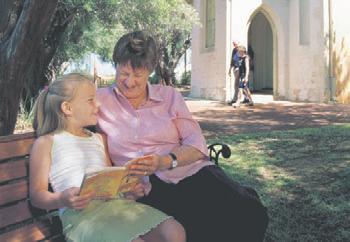



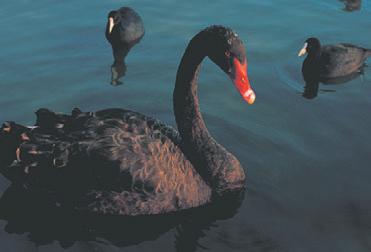

For over 155 years the Sisters of Mercy have provided wonderful aged care and community services from the Wembley site.
Now, as part of a program to expand and develop these important services, a substantial area of this historic site is being transformed into an over 55s village of world-class.
Mercy Village–Wembley will offer luxury apartments, villas and terraced villas in a safe, involving and superbly planned community, with its very own chapel.
PG516
Payment method:Cheque/money order enclosed
OR Please debit my credit card
BankcardVisaMastercard
LETTERS PLEASE
Mr/Mrs/Miss/Ms/Rev . . . . . . . . . . . . . . . . . . . . . . . . . . . . . . . . . Address . . . . . . . . . . . . . . . . . . . . . . . . . . . . . . . . . . . . . . . . . . . . . . . . . . . . . . . . . . . . . . . . . . . . . . . . . . . . .Postcode . . . . . . .
Ph . . . . . . . . . . . . . .Email . . . . . . . . . . . . . . . . . . . . . . . . . . . .


SELLINGFAST
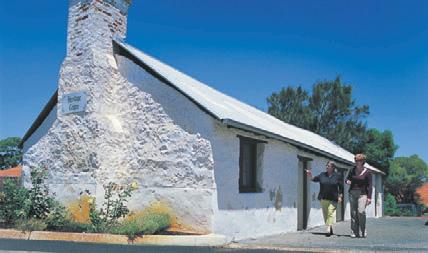

To find out more about the limited opportunities available to become a part of this incomparably well located, premium–quality village, simply telephone Karen Bailey or Chris Gaggin now on 1800 144 313.
Or visit the Sales and Information Centre located at the Catherine McAuley Family Centre, at 18 Barrett Street, inWembley.
You’ll soon discover that we’ve taken care of absolutely everything.
October 27 2005, The Record Page 3
MECA44
send me: Number Amount . . . . “I Believe” (A Little Catholic Catechism) ($10)* Postage and Handling included Charity donation (optional) . . . . . . Total enclosed . . . . . .
Please
Limit 6 copies per order. No GST applies as the Catechism with postage is available at 50% below its market value Exp Date . . . ./ . . . .Signature . . . . . . . . . . . . . . . . . . . . . . BLOCK
Europe declines, everywhere else is up
Church growing everywhere except Europe; numbers of catechists and lay missionaries are increasing.
Catholics are increasing in number in all continents except Europe, according to new Church data.
According to data taken from the latest edition of the Church’s statistical yearbook, as of year-end 2003, baptized Catholics increased by 0.3 per cent, and now comprise 17.23 per cent of the world’s population. The data were reported by Fides, an agency of the Congregation for the Evangelization of Peoples, on the occasion of World Mission Sunday.
The data also reflect a slight increase in the number of priests, a decrease in the number of women religious, and a sizable growth of lay missionaries and catechists.
The number of Catholics grew by over 15 million, totaling more than 1.085 billion worldwide.
The number of Catholics increased in Africa by 0.34 per cent, America by 0.17 per cent, Asia by 0.03 per cent and Oceania by 0.37
per cent. Europe decreased by 0.31 per cent.
The number of people per priest in the world increased by 156 (the overall ratio was 12,264 to 1).
By continent, the numbers were as follows: increase in America (+63) and Europe (+57) and Oceania (+13); decrease in Africa (-409) and Asia (-450).
The number of Catholics per priest in the world increased by 35 (the overall ratio was 2,677 to 1).
By continent: increase in America (+51) and Europe (+12), in Africa (+29), Oceania (+13); Asia same as last year (average 2,407 Catholics per priest). Mission stations with resident priests numbered 1,701 (272 more than the previous year) with an increase on every continent, except Africa.
Mission stations without a resident priest increased by 3,068, to 112,115. Increases were registered in Africa (+416), America (+4,553) and Europe (+4), decrease in Asia (-1,710) and Oceania (-195).
Bishops
The number of bishops in the world increased by 47, to 4,742. The numbers increased on every
Procession of thousands
Continued from page 1 chairs, parish and other groups carried glittering banners and pictures, many wore traditional dress from their native countries, ceremonial gowns or the t-shirts of their various groups, and in a wonderful display of faith all remained recollected in prayer and song as they walked along.
Christina Posavec, from the Croation Catholic community at St John’s Park, was excited to be part of the day.
“This is such a unique event and a great opportunity for us to witness Christ,” she said.
Andrea Calilhanna, who walked with her husband Gerard and baby daughter, said, “as a mother it is such great joy to bring our baby to such a rare event”.
Gerard agreed: “It’s a fantastic way to publicly witness to the reality of the presence of Our Lord in the Blessed Sacrament.”
George Wright snr, of St Francis Xavier parish, Lurnea, said the occasion was unifying. “It is lovely to be with so many others who seem to have the same faith,” he said.
As the leaders reached their destination and Bishop Porteous placed the monstrance on the main altar for adoration, the colourful mass of people quickly filled the cathedral and cathedral square, where a large screen had been erected, and even spilled into Hyde Park.
Some worshippers left outside, rather than follow the liturgy of hymns and readings on the giant screen, stood or knelt in the direction of the altar anyway, eyes closed in prayer.
Bernadette Ingold, of Carlingford parish, said she had decided to come partly to “help make up the numbers”.
“But look at this crowd! It’s just wonderful to see how so many have come here, from so many backgrounds and all are so reverent.”
Caring Lady Funerals
With over 20 years experience, Caring Lady Funerals is a name you can TRUST.
Specialising in Catholic Funeral Masses and servicing all areas, we provide unrivalled quality and care for you and your loved ones.
Caring Lady Funerals, when Service and Compassion matters most.
1300 787 305

continent, markedly in Europe (+23). Diocesan bishops numbered 2,597 (928 fewer than the previous year), religious bishops increased by 975, to 2,145. Diocesan bishops increased in Africa but decreased in Europe (-615) and America (249), religious bishops increased on all continents, markedly in Europe (+638) and America (+ 256)
The total number of priests in the world increased by 392, to 405,450. The highest increases were in Africa (+1,145) and Asia (+1,010). Only Europe posted a loss (-1,897).
Diocesan priests increased by 707, with increases on all continents except Europe, which lost 1,021. Religious priests decreased by 315. The only continent with an increase was Asia (+447).
Permanent deacons increased by 1,427, to 31,524. The biggest increases were in the Americas (+1,075) and Europe (+336). Only Asia showed a decrease (-3).
Permanent diocesan deacons numbered 31,000, up 1,499, with increases on all continents. Religious permanent deacons numbered 524, down 72 from the previous year. Only Oceania posted an increase (+1).
Brothers decreased by 208, to 54,620. Increases were seen in Africa (+231) and Asia (+327); decreases were reported in Europe (-309), the Americas (-394) and Oceania (-63).
Women religious
The number of women religious fell 6,663, to 776,269. Decreases were reported in Europe (-9,397), the Americas (-2,843) and Oceania (-297); increases were seen in Asia (+3,445) and Africa (+2,429).
The members of male secular institutes totaled 691, an overall increase of 121 compared with the previous year. All continents posted a rise. Members of female secular institutes also increased, by 720, to a total of 28,916. Only one continent, Asia, saw a decrease (-41).
The number of lay missionaries increased by 28,586, to 172,331, with increases on all continents. Most lay missionaries are in the Americas (156,461); their ranks there rose by 21,815.
Catechists in the world increased by 80,222, to 2,847,673. Increases were posted on all continents, notably in the Americas (+53,675) and Europe (+15,672).
Seminarians
The number of major seminarians, diocesan and religious, decreased by 826, to a total of 112,373.
Overall increases were posted in Asia (+686) and Oceania (+9). Diocesan major seminarians fell by 711, to 72,266; and religious seminarians fell by 115, to 40,107.
Both categories decreased in Africa, the Americas and Europe; but increased in Asia. In Oceania, diocesan seminarians increased and religious seminarians decreased. Minor seminarians, diocesan and religious, decreased by 1,411, to 98,372. Increases were posted only in Europe (+84) and Oceania (+57). Minor diocesan seminarians fell by 1,081, to 75,562; religious fell by 330, to 22,810.
Both categories decreased in Africa and the Americas. Asia showed an decrease in diocesan and increase in religious.
Europe saw an increase in diocesan seminarians, and a decrease in religious.
Oceania showed an increase in both categories.
- ZENIT

Fatherhood, parenting books sellout
Continued from page 1
fathers mould their children, were sold within a week of its review appearing in the paper.
The second, Preparing for peer pressure, was sold out within the weekend it appeared.
The books offer a different solution to parenting in a culture dominated at all levels by anti-family trends.
All emphasise that the problems afflicting family life can be usually avoided through a unified approach by both parents aimed at helping children grow into mature and wellbalanced adults living the virtues.
By contrast, a key problem affecting family life these days is that
many parents do not know how to deal with the complex pressures affecting their families and are usually ignorant of the profound nature of their vocation.
Author Stenson has also identified the importance of families finding other families who share the same values in order to promote friendships between families, thereby avoiding a sense of isolation in what they attempt to do for their children.
A review of the third book in the series, Preparing for adolescence, appears on Vista 1 in this week’s Record
Record editor Peter Rosengren said he was pleased with the response.
“It is good to see that these books have struck a chord. We intend to keep offering resources to families that will give them practical solutions to the challenges thrown up by our society,” he said.
“What this reveals is that people are aware there is a problem and are searching for solutions.
“Although many trends in our society are of concern, people should not be alarmed. There are ways in which parents can help their families and put the odds back in their favour.”
He said The Record has already ordered more copies of the books to help meet the demand,
These should be available in the near future, he said.
Page 4 October 27 2005, The Record
“A Caring Alternative”
They came: Old and young - an estimated 10,000 or more people turned out for a eucharistic procession through Sydney’s streets to mark the end of the Year of the Eucharist last weekend.
Photo: courtesy of The Catholic Weekly, Sydney.
Synod closes, focussed on renewal
Bishops want
better emphasis on missionary nature of the Eucharist
■ By John Thavis
The Synod of Bishops closed with a strong call for eucharistic renewal, urging a deeper understanding of the Eucharist among the world’s Catholics but no major changes in church rules on priestly celibacy or shared Communion.
Pope Benedict XVI, who presided over the three-week assembly, formally closed the synod on October 23 with a Mass in St Peter’s Square. He thanked the more than 250 bishops for their input and invited Catholics to contemplate the Eucharist as the key to revitalising their faith.
Catholics should also understand that “no dichotomy is admissible between faith and life,” he said.
The pope expressed his deep sadness that four Chinese members of the synod were not allowed to travel to Rome for the assembly and said the church in China was still on a “suffering path.”
On October 22 the synod handed the Pope a list of 50 propositions, or final recommendations, which acknowledged a priest shortage in some parts of the world but said eliminating priestly celibacy and ordaining married men were not the solution.
“I think it is significant that there has been a massive restatement of the tradition in the Latin Church of mandatory celibacy for priests,” Australian Cardinal George Pell of Sydney told reporters.
In an unusual move, the Pope immediately ordered the propositions published; normally they are considered confidential. He said he would use the bishops’ recommendations in preparing his own document sometime in the future.
The synod also published a final message, which asked Catholics to allow the Eucharist to transform their lives and the life of the world.
The message expressed pastoral concern and sadness for the situation of Catholics who have divorced and remarried civilly without an annulment, but offered no relaxa-
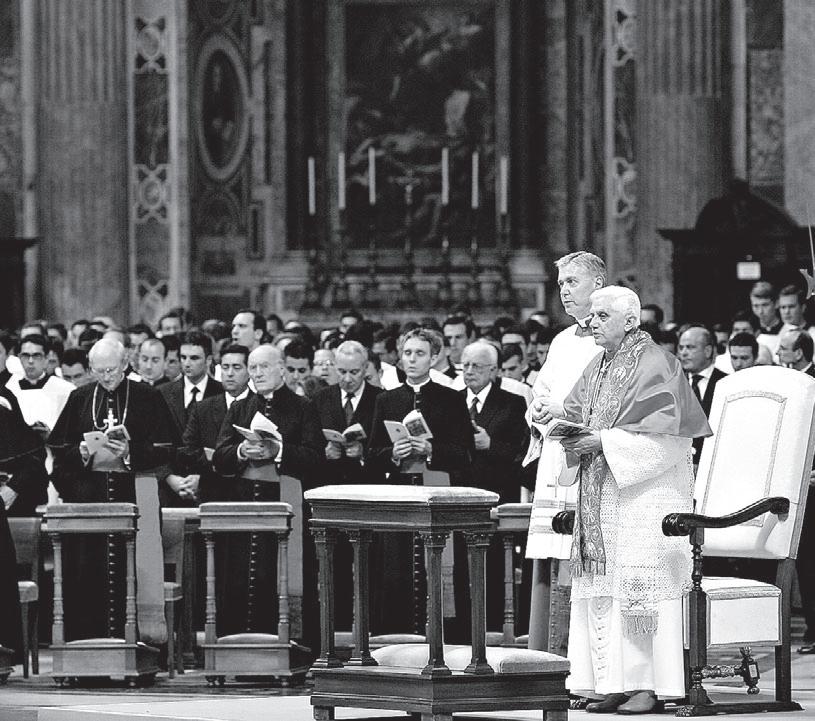
tion in Church rules that prohibit them from receiving Communion.
The synod’s propositions echoed that statement, but suggested that some margin of flexibility might be found in further study of Church law on the conditions for annulments.
The status of divorced and remarried Catholics was one of several sensitive pastoral issues raised by bishops on the synod floor.
The synod also:
● Praised the value of priestly celibacy and called for a greater push in vocations as the answer to the priest shortage. It said ordaining married men in the Latin church was “a road not to follow.”
● Reaffirmed that shared Communion with non-Catholic Christians “is generally not possible” and said an “ecumenical concelebration” of the Eucharist would be even more objectionable.
Overall, the synod offered a strong endorsement of the liturgical reforms of the Second Vatican Council, saying they had greatly benefited the Church. Abuses have occurred in the past, but have substantially diminished today, it said.
Despite recent speculation over wider latitude for celebrating the pre-Vatican II Tridentine Mass, the synod’s final documents did not even mention that possibility.
The synod encouraged promotion of eucharistic adoration, but
stressed that the practice should be seen in relation to Mass.
To promote better Mass attendance, the bishops recommended better liturgies, strong preaching and improved education of Catholics in their understanding of the Eucharist.
They also emphasised that while the Eucharist is the centre of Christian life not everyone has an automatic right to receive it at all times.
The synod’s other recommendations included:
● Better emphasis on the missionary aspect of the Eucharist.
● Study and possible change in the order of the sacraments of Baptism, Confirmation and the Eucharist.
● Possible relocation in the liturgy of the sign of peace exchange.
● Reminding the faithful of the importance of genuflection or other gestures of adoration before the consecrated host.
● Better awareness of the Eucharist’s connection with social justice issues, including ecological concerns.
With the end of the synod came the close of the Year of the Eucharist convened by Pope John Paul II. The bishops said they hoped the special year might be “a point of departure for a new evangelisation of our globalised humanity that begins with the Eucharist.”
POSITION VACANT OFFICE MANAGER, THE RECORD
The Record has a vacancy for an office manager with responsibility for administrative and financial duties. An important part of this position is management of The Record’s financial operation, which is maintained and operated using MYOB software on a Mac computer platform. Experience in using MYOB is a definite advantage.
Interested applicants should forward a letter and curriculum vitae setting out relevant experience to:
TheEditor
The Record PO Box 75 Leederville WA 6902
Closingdate:1November,2005


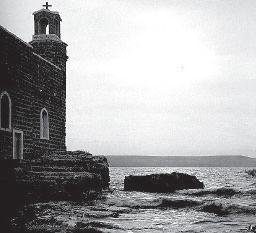

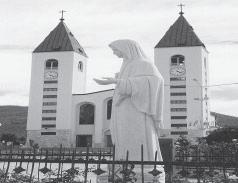
October 27 2005, The Record Page 5 Flightworld Travel Perth (08) 9322 2914 Travelscene Lords (08) 9443 6266 HARVEST PILGRIMAGES 1800 819 156 FEBRUARY SPECIALS $4095 All prices do not include taxes Lic. 2TA 003632 Frankfurt (1 night) Medjugorje (7 nights) Take advantage of the time of year and visit the village of grace and peace at this special price. MEDJUGORJE SPECIAL Departing 23 Feb 2006 With optional 3 nights Rome - $3290 $2590 $3890 Special February price HOLY LAND PILGRIMAGE Pope John Paul II encouraged “pilgrimages of peace to the Holy Land... I encourage it with all my heart”. Sea of Galilee (4 nights) • Cana Mt Tabor • Nazareth • Mt of Beatitudes Jerusalem (5 nights) Departing 12 February 2006 A unique opportunity... INCLUDES TWO FREE EUROPEAN BONUS FLIGHTS OPTIONAL EXTENSIONS ROME: 3 nights at $595 ROME & MEDJUGORJE 10 nights at $1295 Special February price Is religious life for you? Are you wondering if religious life is for you? If so, we invite you to have a retreat with a community of young women who seek to live the example and spirit of the Holy Family. For inquiries please phone Rosa 9378 3044. Read it in The Record
He is here: Left, Pope Benedict XVI and bishops from around the world gather in St Peter’s Basilica to adore the Eucharist. The synod encouraged eucharistic adoration but stressed it be seen in relation to the Mass. Photo: CNS
From Dunsbourogh to Bali, with love
■ By Jamie O’Brien
Seven-year-old Emma Ferguson, a student at Our Lady of the Cape Primary School Dunsborough, recently had the experience of presenting $650 to Fr Hubertus Hady of St Francis Xavier Parish in Kuta, Bali to assist with the building of a new church.
Our Lady of the Cape Principal Riley Horrocks made a similar the trip to Bali last year to donate $900.
The school raised the money by having a ‘Mission Market Day’, and intends to continue making contributions to St Francis Xavier Parish until building is completed.
“It is our way of uniting with the Balinese people and an opportunity to show them that we have a universal brotherhood that cares about them,” Mr Horrocks said.
St Francis Xavier Parish Priest Fr Hady said the Church was originally built in 1984 for a congregation of about 400 people.
An increase in tourism and an influx of Catholic workers from other provinces has resulted in the Church now looking after about 4000 people.
Dunsborough man Jack Robinson, who is also a teacher at Our Lady of the Cape Primary School, was present for the occasion.
“The congregation has found it difficult to raise the funds needed to build their new church because of the bombings in 2002, the SARS epidemic and the effects of terrorist activities.
“The most recent bombings will not make things any easier but the continued efforts of the 200 children from Our Lady of the Cape Catholic Primary School will ease their financial burden,” Mr Robinson said.
“Tears of joy were shed by these devout Catholics in response to the generosity of these young children from one of our Western Australian schools,” he said.
“The small crumbling church was overflowing for the occasion and many people had to stand outside.
“As she came down from the altar after the presentation, she was given a standing ovation from the congregation.”
If you would like to donate to the St Francis Xavier building fund, please contact The Record on 9227 7080
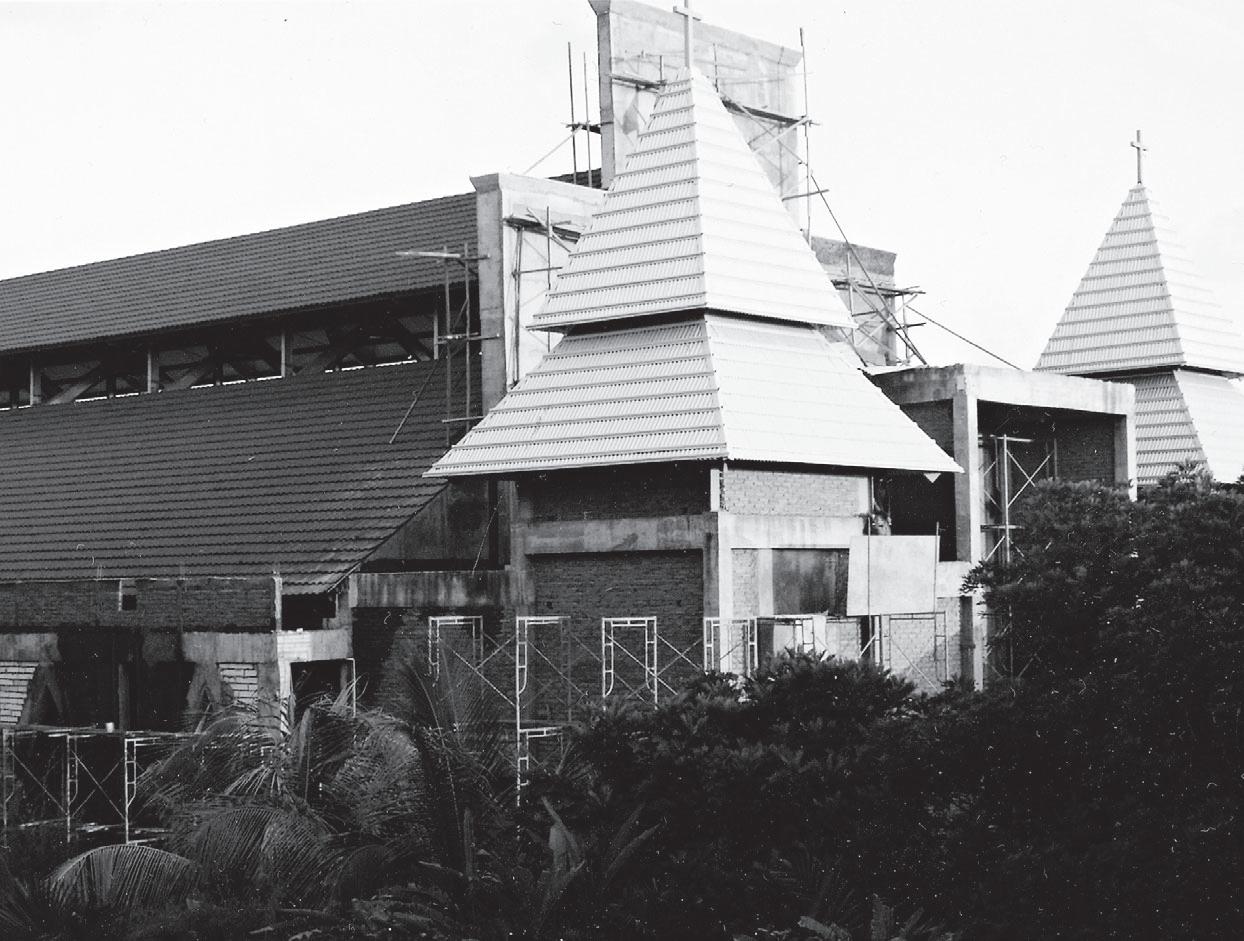
40 modest years for Fr Hoare
After four decades of priesthood Fr Douglas Hoare of Santa Clara Parish in Bentley wanted to keep the spotlight off himself when it came to a celebration of his 40th anniversary of ordination in June.
But The Record was able to obtain some information from parishioners keen, despite their parish priest’s modesty, to have his milestone recognised.
Fr Hoare has been PP of Bentley since February last year. He has been in the archdiocese of Perth since 1996 but prior to that worked in the Land of the Long White Cloud – New Zealand.
Fr Hoare was ordained on June 26, 1965, in St Joseph’s Cathedral in Dunedin by Bishop JP Kavanagh. He served as a curate in many parishes throughout the Dunedin diocese and as a parish priest in Wyndham (NZ), Palmerston and South Dunedin.
Since coming to Perth he has served in the parishes of Kalgoorlie, Kambalda, Bencubbin, Southern Cross and Goomalling. He also worked for the Aboriginal Catholic Ministry for approximately 18 months.
Since arriving at Bentley Fr Hoare has worked with enthusiasm and vitality to provide prayerful leadership for the

faithful of the parish. In May this year he was invited by the diocese of Dunedin to join fellow priests celebrating a variety of anniversaries of ordination.
Santa Clara parishioners were delighted to be able to send their pastor back to New Zealand to catch up and reminisce with the
many friends he made there.
Meanwhile, Sunday June 26 this year was celebrated in Santa Clara parish with a special Mass followed by lunch.
Parishioners wished Fr Hoare God’s blessings and many more years of priestly service to his people.
Join Pope Benedict XVI in prayer
“For married people: may they grow in holiness in everyday life following the example of so many Christian spouses.”
Mission intention: “For Bishops in missionary territories: may they fulfill their duty to provide permanent formation for their priests.”
- November
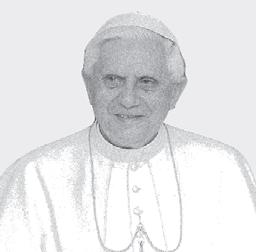
Archbishop
on air

For those who missed Archbishop Hickey’s address on Channel Nine the text is below:
Welcome.
I believe that I am always in the presence of God. This belief gives meaning to everything I do and how I see the world.
But there are times when our life appears like a harsh desert and God seems very far away. It happens to me and I am sure to many of you.
In those moments, I ask you to hang on – to be patient and have
courage. God is in the darkness as well as in the light - and God will never abandon you.
Know that you are never alone. God’s loving presence, especially in the bleak times, will give you strength and the precious gift of peace.
Think about it.
I’m Barry Hickey, Catholic Archbishop of Perth.
Next: November prayers of the dead. For current and past talks visit www. perthcatholic.org.au.
Year of the Eucharist
Christ is our sanctification and redemption, the Comforter of pilgrims and the eternal joy of the saints. Let us receive Him with love!
– Thomas à Kempis
Let us come to this Supper and be filled. Let the beggars come, for He Who invites us became poor for our sakes. Let the sick come, for it is not the healthy who need the Physician but the sick. Let the blind come and say to Him, “Give light to my eyes lest I sleep in death.”
– St Augustine


Page 6 October 27 2005, The Record
St Francis Xavier Church in Kuta, Bali. Building of the chuch has slowed because of a lack of tourism, caused by the bombings, SARS epidemic and the effects of other terrorist activities. Photo courtesy Jack Robinson
Fr Douglas Hoare of Santa Clara Parish Bentley
They’re your children. They look to you.
Give them the best
Preparing for Adolescence
A planning guide for parents
ByJamesStenson
PublishedbyScepterPublishers
AvailablefromTheRecord
$7pluspostage
■ Reviewed by Mark
Reidy
Educator James Stenson describes his parenting book, Preparing for Adolescence as, “a preview of coming distractions.” However while he acknowledges that the teenage years can be unsettled at times, he approaches the subject with optimism.
Stenson says that parents are too often bombarded with the prevailing myth that adolescence must be a time of trauma. He says that it is, potentially, one of the most interesting and satisfying periods of a family’s life, if parents are willing to prepare for the process from an early age.
In his earlier book, Preparing for Peer Pressure, Stenson focused on instilling virtues to develop children’s character and conscience, but in this concise 68 page book, he aims to prepare parents for some of the issues they may confront when their children enter the teenage years.
Stenson says that the adolescent drive for independence is natural and it is inevitable that there will be a degree of rebellion during these years. He believes that most young people’s challenges are strategic probes to test their parents’ values and that their underlying motive is the search for solid guidelines.
Stenson advocates that parenting should always be conducted with the long-term formation of the adult person in mind, as this allows the parent to see beyond the emotionalism of any given situation. If parents become aware of
specific issues before they become reality, then there will be no need for defensiveness when values are questioned. Clashes can occur if parents do not have a conviction in their own moral leadership, but can usually be avoided if calm, fair and confident responses are provided.
Stenson presents a composite list of characteristics that he has observed in successful parents in his 20 years of teaching and shares some of their insights and advice. He follows this with an overview of typical features of adolescence before offering a question/answer format of the most common issues that arise between teenagers and their parents.
He addresses queries such as; “Why do you treat me like a child?”, “Why don’t you trust me?”, “Other kids are doing it/ wearing it/ watching it/ listening to it - why cant I?”, Why should I go to Mass?”, “When is the right time to start dating?” and “Why can’t I do what I want?”
Stenson acknowledges that the answers he proposes are adult in their nature, but he does this to provide information rather than suggest exact words to use. He recognises that each family is unique and the message needs to be delivered accordingly.
The author promotes prayer and a reliance on God as a foundation to his theories and believes that benefits can be maximised through a parental peer-support network. He encourages readers to seek out families they admire, especially those with more experience, to meet regularly to discuss and learn from one another. By building relationships with others who will, are or have been through the journey of adolescence, parents open themselves to knowledge, encouragement, alternative strategies and emotional objectivity.
Stenson paints a picture of optimism for parents who are prepared to plan for adolescence in advance. He believes that children can be formed into mature, confident, responsible adults who live by Christian principles before they leave their teenage years.
Now that’s worth reading about!
AVAILABLE FROM THE RECORD NOW!
Preparing for Adolescence $7 plus postage
OR
All three for $18, plus postage:
■ Successful Fathers
■ Preparing for Peer Pressure,
■ Preparing for Adolescence
Contact the Vista Club at The Record
on (08) 9227 7080 or via cathrec@iinet.net.au
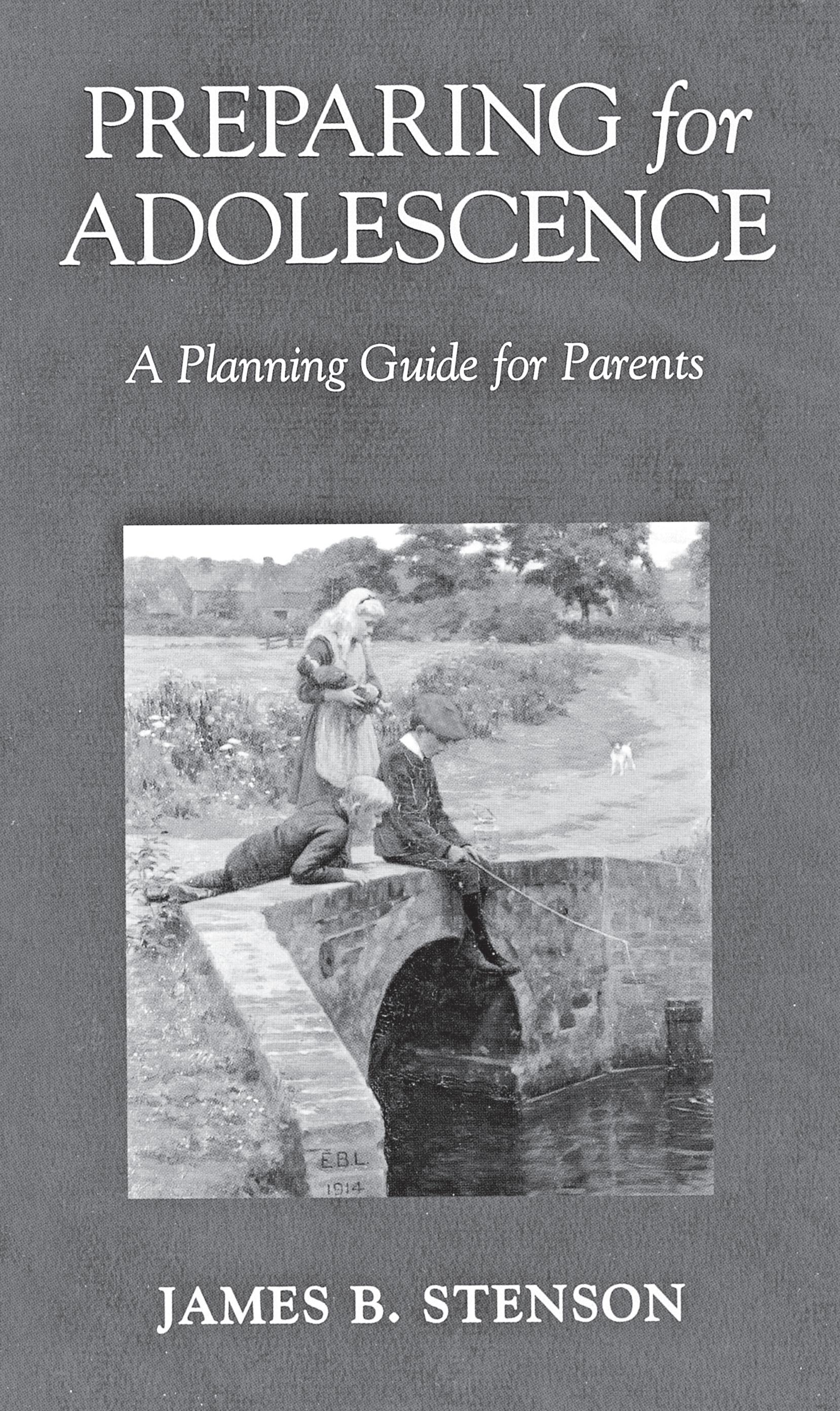
Vista October 27 2005 Page 1
Saint Alberto worked to attack the roots of injustice and to care for the the abandoned
A saint with attitude
“Christ roams through our streets in the person of so many suffering poor, sick, dispossessed and people thrown out of their miserable slums,” Blessed Hurtado told a group of women during a retreat.
“Christ huddled under bridges, in the person of so many children who lack someone to call father, who have been deprived for so many years of a mother’s kiss upon their foreheads. ... Christ is without a home. Shouldn’t we want to give him one, those of us who have the joy of a comfortable home, plenty of good food, the means to educate and assure the future of our children?”
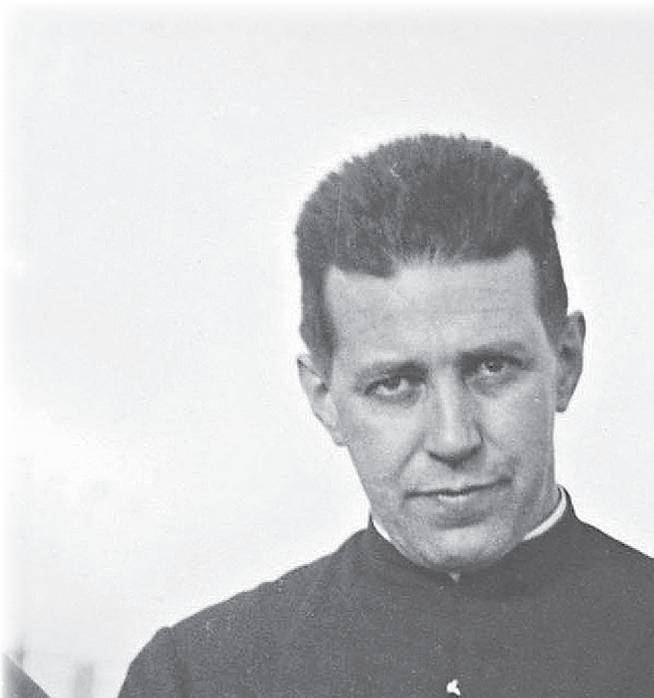

 ■ By Pascale Bonnefoy
■ By Pascale Bonnefoy



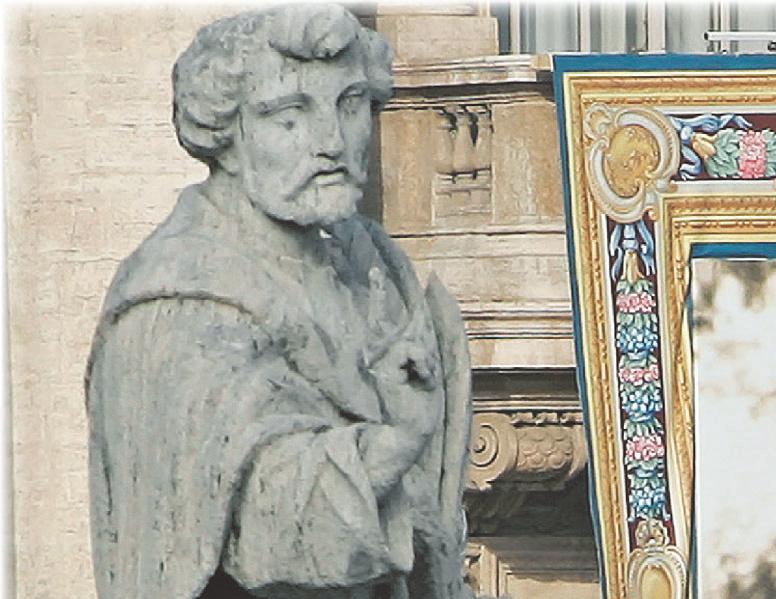

SFACES OF SANCTITY: Fr Alberto Hurtado is a thoroughly modern saint, a contemporary, a model of generosity and love for an increasingly selfish society such as ours. Meanwhile, the existence of so many photographs of the new saint helps to bring home perhaps a little more directly something else: the saints are ordinary people, just like us, and we are meant to be just like them in pursuing God’s plan of love and life for each of us. It’s that simple. An icon of Saint Alberto, at left, shows the new saint holding the Christ child; one of Saint Alberto’s first concerns was providing homeless children with a shelter and a home environment where they could experience human love and affection. A photo of Saint Hurtado, below, hangs from a balcony at St Peter’s in Rome during last weekend’s canonisation ceremony.

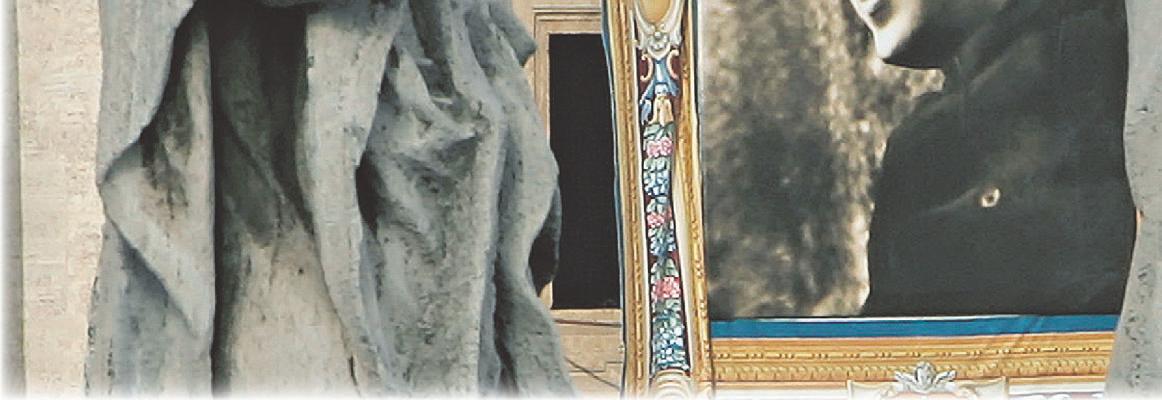


5 New Saints
Last Sunday, Pope Benedict XVI, canonised the first five saints of his pontificate while closing the Year of the Eucharist.
“The saint is he who is so fascinated by the beauty of God and by his perfect truth to be progressively transformed by it,” he said in his homily.
“Because of this beauty and truth, he is ready to renounce everything, even himself,” the Holy Father said. “The love of God is enough, which he expresses in the humble and disinterested service to the neighbor, especially to those who cannot give back in return.”
Below are the names of the Church’s five newest official saints with a few of Pope Benedict’s words on each.
Gaetano Catanoso
(Italy, Diocesan priest, 1879-1963)
The Holy Father called Gaetano Catanoso the “apostle of the Holy Face of Christ.”

“Daily Mass and the frequent adoration of the Sacrament of the Altar were the soul of his priesthood,” Benedict XVI said. “With ardent and untiring pastoral charity he dedicated himself to preaching, to catechesis, to the ministry of confessions, to the poor, to the sick, to the care of priestly vocations.”

Felice de Nicosia
(Italy, Capuchin, 1715-1787)
“Father Felice helps us to discover the value of the little things that make our lives more precious, and he teaches us to grasp the meaning of family and of service to the brothers, showing that true and lasting joy, which every human being’s heart desires, is the fruit of love.”
Benedict XVI recalled the words Felice de Nicosia would repeat during good times or bad times: “Be it for the love of God.”
Alberto Hurtado Cruchaga
(Chile, Jesuit, 1901-1952)
Alberto Hurtado, said the Pope, is “a true contemplative in action. In love and in the total commitment to God’s will, he found the strength for the apostolate. He founded The Home of Christ for the most needy, and for those without a roof, offering them a family atmosphere full of human warmth.”
Jozef Bilczewski
(Poland, Archbishop, 1860-1923)
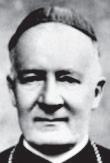
aint Alberto Hurtado Cruchaga used to say that injustice created many more ills in society than Christian charity could repair. So he not only roamed the streets with his green pickup truck searching for homeless children to take to the shelter he founded, but also dedicated a great part of his life to attacking the roots of that injustice.
Nearly all Chileans know about his most famous and lasting legacy, the Hogar de Cristo movement, but few are familiar with his efforts organising youth groups to study the Church’s social doctrine and educating workers to become labor leaders so they could promote social change from their workplaces.
Saint Hurtado is one of five men canonised by Pope Benedict XVI last Sunday, October 23, at the Vatican.
“Father Hurtado’s deep identification with Christ was the basis for his concern for the poor, which he expressed in two main areas: individual charity for those who suffer and social charity, contributing to long-term structural solutions to lessen ... injustice,” said Father Samuel Fernandez Eyzaguirre, dean of the theology faculty at Santiago’s Catholic University
and director of the university’s centre of studies and documentation on Saint Hurtado.
Saint Hurtado’s concern for workers and their rights dated back to his days as a law student at Catholic University, where he began studies in 1918.
With other students, he set up a legal bureau to counsel workers and organised students to help miners who had migrated to the capital after losing their jobs during a crisis in nitrate production. In 1921, he wrote a thesis on the regulation of child labour, and his final thesis to graduate as a lawyer two years later was titled “Work From Home.”
Only a week after graduating, Saint Hurtado entered the Jesuit novitiate, taking his religious vows two years later and continuing his theological studies in Spain and Belgium. He was ordained a Jesuit priest on August 24, 1933. Shortly thereafter he helped to found the theology faculty at the Catholic University of Chile. In 1941, he was named diocesan moderator of the youth of Catholic Action, and he later served as national moderator.
A few years later, Saint Hurtado began Hogar de Cristo, Spanish for “Christ’s home,” for abandoned children.
“Christ roams through our streets in the person of so many suffering poor, sick, dispossessed and people thrown out of their miserable slums,” Saint
Hurtado told a group of women during a retreat.
“Christ huddled under bridges, in the person of so many children who lack someone to call father, who have been deprived for so many years of a mother’s kiss upon their foreheads. ... Christ is without a home. Shouldn’t we want to give him one, those of us who have the joy of a comfortable home, plenty of good food, the means to educate and assure the future of our children?”
By the end of the retreat, Saint Hurtado had collected the first donations - a piece of land, cheques and jewels - for Hogar de Cristo. The first shelter was opened in 1945.
Today, Hogar de Cristo has homes in several Chilean cities to shelter and rehabilitate thousands of people, particularly infants and young children, adolescents, the elderly and the physically and mentally handicapped, and those suffering terminal illnesses, including AIDS.
In 1947, along with a group of university students, Saint Hurtado founded the Chilean Labour Union Action, a school for the formation of labour leaders. The founders believed that, if given the tools and a Christian orientation, workers would apply the Church’s social doctrine in their workplaces and provoke the social changes needed to correct injustice. The organisation offered workers night classes in mathematics, Spanish, accounting, labor history
and the Church’s social doctrine. Although Saint Hurtado was always backed by his direct superiors, some Church leaders, political parties and conservative groups did not approve of his zealous commitment to workers and the poor.
Chilean Labor Union Action was often wrongly seen as a trade union, and some called Saint Hurtado “the red priest.”
“He was a man of great charisma with a strong influence over a large part of society. He wasn’t a controversial figure; people liked being near him, they sought his company, and he didn’t go around as a moral crusader, accusing people of being superficial. But, as anyone with a high public profile, Saint Hurtado was subject to criticism, and there were people from all sectors of society who thought that a priest should be dedicated to other things, not social action,” said Father Fernandez.
Only a year before his death in 1952, Saint Hurtado founded the Catholic magazine Mensaje (Message), which still circulates today. “Chilean society would be very different now if Father Hurtado hadn’t existed. Today’s society certainly isn’t a perfect reflection of his ideals, but he surely had a lasting influence, especially among students, who do volunteer work with the poor during their summer and winter vacations,” said Father Fernandez. - CNS
Regarding Jozef Bilczeski, the Bishop of Rome said his “deep knowledge of theology, faith and Eucharistic devotion … made him an example for priests and a witness for all the faithful.”
The Holy Father noted that the archbishop devoted long hours each day to prayer and other pious practices, with “a particularly long time… dedicated to Eucharistic adoration.”

Zygmunt
Gorazdowski
(Poland, Diocesan priest, 1845-1920)
“Zygmunt Gorazdowski became famous for the devotion founded on the celebration and adoration of the Eucharist. Living Christ’s offering urged him towards the sick, the poor and the needy,” Benedict XVI said.
Page 2 October 27 2005, The Record October 27 2005, The Record Page 3 Vista Vista
Graphic: Derek Boylen
Evolution still doesn’t explain Mozart

■ With Guy
Crouchback
A number of scientists and science-teachers claiming to represent 70,000 of their fellows (were they all consulted, one wonders?) have made a statement attacking the teaching of Intelligent Design. The gravamen of their argument is that the theory of Evolution is Scientific and the theory of Intelligent Design is not.
I have no particular brief for or against Intelligent Design and in any case I am not a scientist. I accept the findings of science about the age of the Universe and the Earth, the fossil record and so forth (From the point of view of a God who transcends Time the question of whether the Earth is new or old is meaningless anyway). However, I think a couple of points can be made about it.
Intelligent Design, as I understand it, accepts that the Earth is billions of years old, and that evolution occurred, but claims that life could not have become as complex as it has, even in the scientificallyaccepted time frame, merely by ran-
dom mutations and without some Intelligence being involved in the process. Carrying on from William Paley’s “Argument from Design” it holds that life - in particular human life - is so complex and its parts so interdependent, that it could never have evolved by chance, as a functioning watch found on a beach could never have been put together by the random activities of wind and waves pushing around atoms of metal.
One aspect of it also points to the fact that life is very improbable anyway for other reasons (Earth has a uniquely large moon for a planet of its size.
If that moon were a little larger, its gravitational pull would skim off too much of Earth’s atmosphere; if it were a littler smaller, it would skim off too little, for example).
I do feel the proponents of evolution have the best working paradigm but that they claim just a little too much if they are claiming the theory of evolution explains everything (this was also the opinion of a friend of mine who spent several years writing a PhD on evolution and its critics).
In their statement in The Australian on 21 October the representatives claimed, among other things, that evolution fills the criteria of a scientific theory of “being able to predict outcomes in novel situations.”
Yes, but ... It might have predicted, perhaps, that a savannahdwelling African ape might learn to use sticks and stones as hunting

tools. But could it have predicted that a savannah-dwelling African ape would evolve enough brain to worship gods, build cathedrals, create paintings of Michaelangelo, the plays of Shakespeare and the music of Mozart and Beethoven and fly to the moon?
I venture to think not.
Evolution itself says animals do not evolve capacities in excess of what they need for species survival: the cheetah evolved to run at about 70 kilometres an hour in short bursts, and then, when it was just as fast as it needed to be to
catch prey, survive and breed, its evolution stopped.
It did not evolve to run at 700 kilometres an hour. So how does evolution alone explain that ape evolving a brain a multiple of times greater than anything that was required for species survival?
Mary we know, but do we also pay attention to Grace?
Catherine Parish

@ home
Iheard a story recently from an old religious brother who for many years did surveys of various kinds in Catholic high schools. He was talking to an ex-student who asked him “Brother, I know about Mary and where she fits into the equation, but who is this Grace I’ve heard about - what is her role?”
Maybe a lot of us don’t know about that Grace and what her role is or have forgotten about her. It isn’t something we hear terribly much about these days.
Life is so comfortable for us, we cruise along light-heartedly without giving much thought to what oils the wheels.
Supernatural grace, the free gift with every Baptism, given by God to bring us to eternal life, and actual grace, given when prayed for to help us through life’s ups and downs, are so vital to the Catholic’s life.
It is only through the workings of grace in our lives that we can adhere to the Church’s teachings, that we can cope with the vicissitudes of life
which often require heroic efforts to face.
It’s only by grace that we can believe in a God we cannot see and desire to live lives that will lead us to eternal union with Him.
It’s only by grace that we can believe in grace and tap into the great fount of grace that springs from God’s love for us and His wish for us to be happy with him forever in Heaven.
Watching my children as they receive the sacraments of reconciliation and especially Holy Communion for the first time, I cannot doubt the miraculous workings of grace.
We do our best to impart some knowledge of what they are doing on these momentous occasions and maybe forget to leave room - or to ask - for God’s own hand to touch them.
And when you see quite definitely effects of the Sacraments far beyond anything your bumbling and somewhat sketchy teaching could have caused, you realise that indeed Our Lord has come to them and filled them with grace, opened their hearts to Him and imparted knowledge and belief and inspired efforts to he good.
You know it is nothing you have done that has suddenly made them more attentive in Mass. They realise without it being spelt out by boring old Mum that they are full participants, and doing something important.
Little signs become noticeable
that they are growing in their personal spiritual life independently. This wonderful and revelatory experience has brought the reality of Grace to my attention more forcibly and consciously than ever before (not that I have-been blessed with five little Aloysius Gonzagas - or would that be Gonzagi? But I’m
sure the barneys would be much more frequent and damaging without frequent infusions of grace!).
There is comfort too in the thought that the whole burden is by no means on you. God wants nothing better than to take the little people you bring to him for the Sacraments, and fill them to the
brim with his gratuitous gift. In the words of that eminently quotable St Paul: “I sowed the seed. Apollos did the watering, but God granted the increase.”
How easy it is to forget that, but how necessary to remember it. We ought to know very well who Grace is, and what her role is!
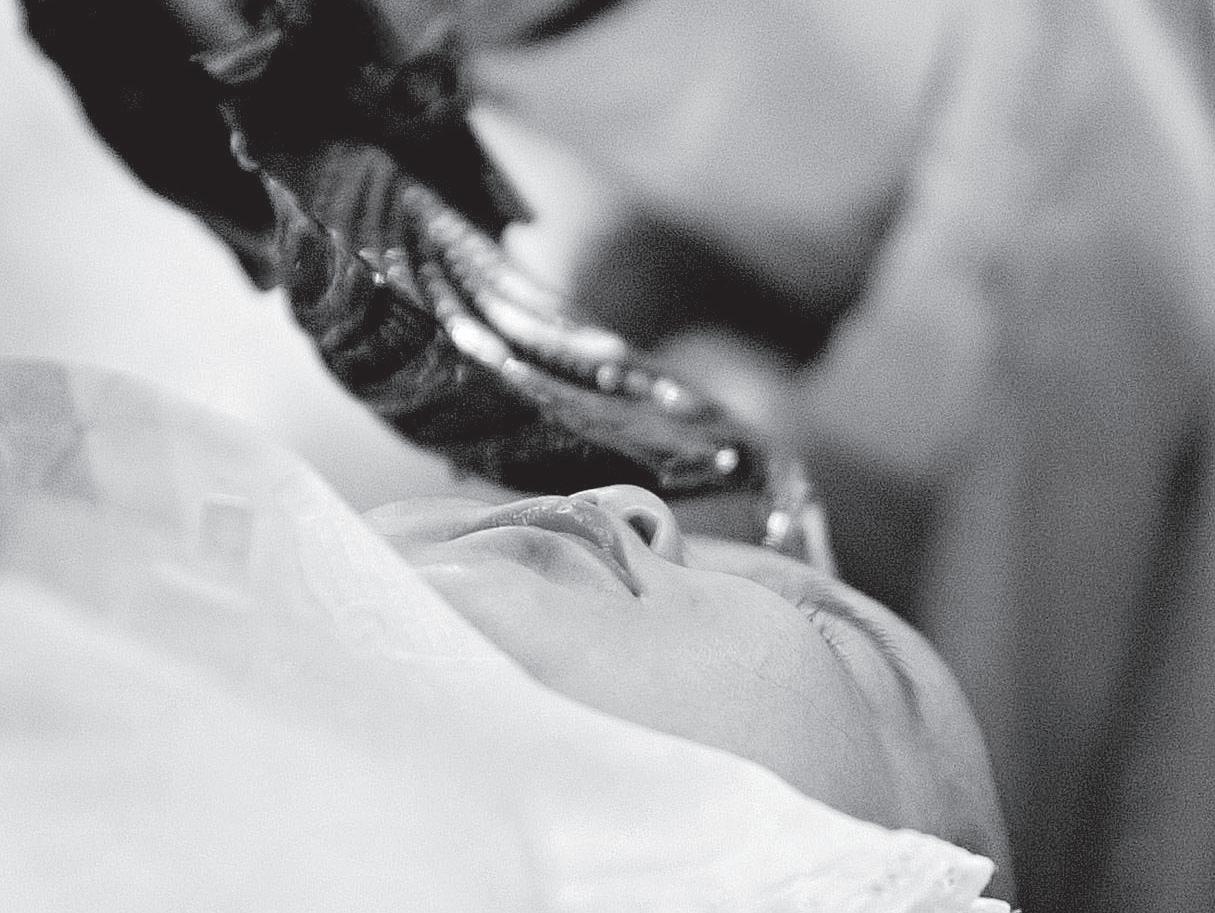
Page 4 l October 27 2005, The Record Vista
Grace conferred: Pope John Paul II baptises a child in the Sistine Chapel.
isay,isay
Photo: CNS.
Predictability: The theories of evolution may have predicted the development of the cheetah’s speed but could it have predicted the amazing development - much less creations - of the human brain?
Statistics reveal one-child policy failure
China’s second thoughts about family planning. Amid new doubts, harsh policies linger.
China’s fierce demographic control policies have exacted a heavy toll during the last quarter-century. An overview of the consequences appeared in an article in the September 15 issue of the New England Journal of Medicine.
The Effect of China’s One-Child Family Policy after 25 Years, authored by Therese Hesketh and Zhu Wei Xing, noted that the regulations cover matters ranging from family size, late marriage and the spacing of children. The term “one-child policy” is, in fact, misleading in that it is applied only to a part of the population, primarily government workers and those living in urban areas. Rural families are generally allowed a second child, five years after the birth of the first, especially if the first was a girl.
The restrictions are underpinned by a system of rewards and penalties, which are administrated by local officials and which vary widely. They can include economic incentives for compliance, as well as substantial fines, including confiscation of belongings and dismissal from work, for non-compliance.
Contraception and abortion are the backbone of the policy. Long-term measures are favoured, with intrauterine devices and sterilisations together accounting for more than 90 per cent of contraceptive methods used since the mid-1980s. The authors note that the majority of women are offered no choice in contraception.
Hesketh and Zhu note that authorities claim that the policy has prevented 250 million to 300 million births. The authors caution that population statistics in China are known to be subject to government manipulation. The total fertility rate - the mean number of children born per woman - decreased from 2.9 in 1979 to 1.7 in 2004, with a rate of 1.3 in urban areas and just under 2.0 in rural areas.
Girls eliminated
One consequence of the family planning restrictions has been the growing disproportion between male and female births. The proportion of male live births to female live births ranges from 1.03 to 1.07 in industrialised countries. In China the ratio was 1.06 in 1979, but climbed to 1.17 by 2001.
Sex-selective abortion, facilitated by the use of ultrasound images to find out the sex of unborn children, accounts for a large proportion of the female babies killed. While infanticide is thought to be rare,

sick female infants are known to receive less medical care. The growing scarcity of females has already resulted in kidnapping and trafficking of women for marriage, and could well be a threat to the country’s stability in coming years, according to some analysts.
The low birthrate has set the stage for a rapid aging of China’s population. The percentage of those over age 65 was 5 per cent in 1982 and now stands at 7.5 per cent. It might top 15 per cent by 2025. These figures are low compared to industrialised nations. The lack of an adequate pensions system in China means that most of the elderly depend on their children for support, leading to concern over how the eversmaller numbers of children will cope in coming years.
Authorities have acknowledged some of the problems caused by the family planning system, by adopting a more flexible policy in various regions. A more-open admission came at the start of this year, Reuters reported on January 6. On the occasion of China’s population reaching the 1.3 billion mark, an editorial in the China Daily supported the one-child policy but conceded: “Admittedly, the family planning policy has gone awry in some places.”
Reuters also reported the same day that
China was taking further steps to avoid the selective abortion of females. The news agency said that government data showed 119 boys were being born for every 100 girls. Sex-selective abortion was already illegal, but the new plans involve a further tightening of regulations, including banning the use of ultrasound machines to detect the sex of fetuses.
Authorities, however, made it clear that they will not countenance opposition to family planning policies. The Associated Press reported on January 5 that a Shanghai woman, Mao Hengfeng, was sentenced to an additional three months in a labour camp because of her opposition to the policies. She was already serving a one-anda-half year sentence for her campaign to abolish the family planning policies.
Repression intensifies
Recent events in the eastern province of Shandong indicated just how harsh the family planning policies still are. On September 7 the Washington Post reported that Chen Guangcheng, a blind peasant who campaigned against the use of forced sterilisation and abortion, had been seized by authorities. Chen was visiting Beijing while preparing a lawsuit to challenge the abuses. Chen, who lives in Linyi, a city to
Virtue traded for a “mess of pottage”
Are new-age froth and feelgood ethics generating new decadent virtues?
Western Europe and the United States are decadent societies because they have abandoned a morality based on the traditional virtues. So says a book just published by the London-based Social Affairs Unit, Decadence: The Passing of Personal Virtue and Its Replacement by Political and Psychological Slogans Edited by Digby Anderson, the volume brings together authors from a variety of backgrounds and views.
A first section contains essays on the “old” virtues, such as prudence, love and courage. The second deals with the “new” virtues, centred on
the environment, caring, therapy and being critical. The book does not pretend to give a complete analysis of any of the virtues, and the authors of the chapters differ in their approach to the subject matter. Readers could also disagree about some of the interpretations of the virtues. Overall, however, the book provides a stimulating reflection on the dangers of discarding the tried-and-true virtues for passing fads.
In the introduction, Anderson explains that the old virtues were genuine ones, in that they demanded of people specific types of behavior. The new ones, in contrast, often fall into the category of slogans or rhetorical appeals. Or, if in some cases they do contain elements of true virtue, they tend to elevate a trivial aspect into the main virtue.
Kenneth Minogue, a retired professor of political science at the London School of Economics, addresses the virtue of prudence. After looking at its classical origins in Aristotle and its subsequent modifications, Minogue observes that prudence was particularly important in balancing conduct by co-ordinating the virtuous acts of a person.
That concept of prudence came under challenge in the 18th century from utilitarian philosophers, who tried to substitute a scientific system of maximising happiness. More recently, the modern world has interpreted prudence as the avoidance of risk, and instead of a virtue we now have statistical analysis and probability theory.
Another way in which the virtue of prudence has been weakened is
the southeast of the capital, had protested against local measures that required parents with two children to be sterilised and women pregnant with a third child to undergo abortions. Three days later the Washington Post reported that Chen had been confined to his home by authorities and couldn’t receive visitors.
In its September 19 edition, Time magazine also reported on the events in the province. The article graphically described the case of a forced abortion of a ninemonth-old unborn child being carried by Li Juan.
The article explained that family planning policies were eased at the national level in 2002, allowing parents to have extra children, so long as they paid big fines. In many cases local Communist Party officials still maintain the old, harsher restrictions and attitudes.
Faced with criticisms by provincial leaders that the birthrate was too high, local officials launched a campaign in March to eliminate what they considered to be the extra births. Time magazine described the operation as “one of the most brutal mass sterilisation and abortion campaigns in years.” In one county alone at least 7,000 people were forced to undergo sterilisation between March and July. According to Time, several villagers were beaten to death for trying to help family members avoid sterilisation.
Officials also resorted to arresting family members of women who did not agree to be sterilised, the Chicago Tribune reported on October 2. And in one case a family was forced to pay a fine and fees equivalent to $617, more than an average farmer makes in a year in the province.
The Washington Post followed up the matter with a report on September 20. The newspaper said that officials in the city of Linyi had been dismissed for abuses committed while enforcing the one-child policy. But the newspaper also cited Jian Tianyong, a local lawyer involved in a lawsuit against the officials, as saying that only a few lowlevel officials had been punished, leaving the party leaders untouched.
The recent events have been criticised by the human rights organisation Amnesty International. In an October 14 press release Amnesty started by noting it has not taken an official position on China’s “birth control policy.” But it is concerned about the human rights violations resulting from the coercive methods used to apply the policy.
Referring to forced abortion and sterilization, and the forcible detention of people, Amnesty declared that it considers such actions “to be cruel, inhuman and degrading treatment amounting to torture.”
- ZENIT
through the increasing role of the state. Instead of personal responsibility we now have an ever-increasing regulation of conduct by governments.
Sentimental ethics
Digby Anderson, until last year director of the Social Affairs Unit, looks at the Christian virtue of love in one of the book’s chapters. This virtue, he explains, has run into difficulties because it can only be understood and lived within the context of a broader Christian theology. Once belief in God, heaven and sin disappear, then love, along with many other virtues, vanishes. In its place we have a populist sentimental ethics, or a secular rights-based ethics. Some of the traditional language of the virtue of love remains, but it is super-
ficial, without a metaphysics or solid anthropology to ground it. So, instead of a virtue that puts God in first place and requires us to love our neighbour, we now have a love that liberates us from rules, encourages us to follow our feelings and exhorts us to be nice to people.
The virtue of thrift is examined by Theodore Malloch, chief executive officer of the Maryland-based Roosevelt Group. Frugality, or thrift, has its origins in the Calvinist tradition. It was based on the idea that a person’s worth is not determined by how much he spends, but by the wisdom shown in discharging responsibilities in the context of being a steward of God’s creation. For a person motivated by such a vision an unlimited desire to possess goods is seen as denoting
October 27 2005, The Record Page 7
Continued on Page 10
One child: China’s one child policy is unbalancing the population.


The World
Stage set for Eucharistic renewal
Synod closes with strong emphasis on eucharistic renewal
■ By Cindy Wooden
While acknowledging problems connected with faith, discipline and manpower, the Synod of Bishops on the Eucharist called on Catholics to approach the sacrament with awe and allow it to transform their lives and the life of the world.
In their final message, the bishops encouraged Catholics to “go joyfully” to meet the risen Jesus in the Eucharist and experience the truth of his promise to be with his followers until the end of time.
The message was released on October 22, a day later than scheduled, after synod members returned it to their drafting committee for dozens of minor changes and after several bishops called for clarification in its section on divorced and civilly remarried Catholics who cannot receive the Eucharist.
The rewriting of the message meant that the bishops did not have a chance to vote on its final form, although Canadian Cardinal Marc Ouellet of Quebec, chairman of the drafting committee, told a press conference on October 22 that the

bishops’ applause earlier that morning signified their approval.
The message said the synod’s goal was to offer Pope Benedict XVI suggestions on how “to update and deepen the eucharistic life of the church.”
It listed several challenges to eucharistic renewal, including secularism with its loss of a sense of the sacred and an awareness of sin; a shortage of priests in many coun-
tries; those in irregular marriage situations; and war, injustice and poverty.
The bishops said Catholics must rediscover the “deepest meaning” of the sacrament of reconciliation; “it is a conversion and a precious remedy given by the risen Christ for the forgiveness of sins and for the growth of love toward him and our brothers and sisters,” they said.
The fact that in many parts of
the world there are not enough priests to celebrate the Eucharist each Sunday “worries us a great deal,” the bishops said. They asked Catholics to join them in praying for and actively promoting vocations to the priesthood.
The message did not mention the October 2-23 synod’s discussion about the possibility of ordaining married men in the Latin-rite church, a possibility the majority
of bishops said was not the path to pursue.
Australian Cardinal George Pell of Sydney told the October 22 press conference, “I think it is significant that there has been a massive restatement of the tradition in the Latin church of mandatory celibacy for priests.”
In their message, the bishops encouraged renewed attention to the idea of “spiritual communion,” in which the faithful prayerfully unite themselves with Christ present in the Eucharist although they do not receive Communion.
The bishops said the practice of spiritual communion would help Catholics have a deeper experience of the Eucharist when they are able to receive it and would “bring genuine consolation to those who, for various reasons, cannot receive the body and blood of Christ in Communion.”
The message also expressed “pastoral concern” and sadness for those who do not have access to the Eucharist because their family situations “do not conform to the commandment of the Lord” regarding the unbreakable bond of marriage.
The bishops said that “while we do not endorse their choice” to live together without the benefit of a sacramental marriage “they are not excluded from the life of the church.” CNS
Inquiry after illegal migrant deaths Demonstration strife
Philippine archbishop says government policy should be challenged
After police used water cannons against a procession that included nuns and priests, the president-elect of the Philippine bishops’ conference said a new government policy prohibiting demonstrations without permits should be challenged in an “appropriate court.”
On October 15, Archbishop Angel Lagdameo of Jaro, the president-elect, said in a written statement that the previous day’s “violent dispersal” of protesters intent on holding a prayer assembly near President Gloria MacapagalArroyo’s office was “uncalled for and objectionable.”
In that incident, police dispersed hundreds of marchers headed to San Beda College in downtown Manila for a Mass organized by a movement for a nationalist economy.
The nationwide movement of business leaders, scholars, urban poor and others is calling for Arroyo’s ouster and the establishment of a nationalist government to replace her administration.
Former Philippine Vice President Teofisto Guingona and Father Robert Reyes were among those in the front lines who were drenched.
In his statement, Archbishop Lagdameo said religious joined the procession as a “patriotic manifestation of concern for our country.”
He said that “because it was a prayer assembly and peaceful pro-
cession, the violent dispersal of the participants was uncalled for and objectionable.”
The legality of the government’s “calibrated pre-emptive response” to street demonstrations “must be questioned before the appropriate court,” the archbishop added.
In September, the government announced that Philippine National Police and local government units had been ordered to enforce strictly the “no permit, no rally” policy and to “disperse groups that run afoul of this standard.”
Archbishop Lagdameo said the procession was “a crusade for good governance, which is sadly lacking and very much needed for economic progress.”
“If the people do not believe in their leaders, how can (the leaders) govern and bring about genuine progress in economy?” he asked.
Archbishop Lagdameo will assume leadership of the bishops’ conference in December.
Father Reyes told UCA News that no one in the procession carried any anti-Arroyo banners.
He said he was surprised to be hit by water.
“First, the water was slapping my face, so I stooped so that it would hit my head instead, because at least my head is harder,” the priest quipped.
He said he did not anticipate the water cannons or “any act of aggression and violence” by the police, who he suspected might have panicked because the crowd outnumbered them.
Christian groups seek inquiry after migrants killed at EU borders
■ By Jonathan Luxmoore
Four Catholic groups and two other Christian organisations have demanded a judicial inquiry after at least 13 illegal migrants were killed and dozens injured while attempting to enter Spanish territory in North Africa.
“As churches and Christian organisations working on migration and asylum, we are deeply concerned about the dramatic events at Ceuta and Melilla,” said a letter signed by the six organisations.
“These events at the EUMoroccan border represent the latest example of more and more people’s desperate, often deadly, attempts, to reach the European Union.”
The letter, sent to the European Union’s Justice and Home Affairs Council, was signed by representatives of the Commission of the Bishops’ Conferences of the European Community, Caritas Europe, Jesuit Refugee Service, the International Catholic Migration Commission, the Quaker Council for European Affairs and the ecumenical Churches Commission for Migrants in Europe.
The letter, dated October 11, said those trying to cross EU borders illegally had “inalienable dig-
nity.” It said the incidents called into question the European Union’s claim to be a “community of justice,” committed to “promoting respect for fundamental rights.”
“These events mark a new escalation in the attempt to stop people entering the EU. For the first time since the fall of the Berlin Wall and Iron Curtain, unarmed people have been shot dead at a border of the European Union,” said the letter.
“We expect a thorough judicial investigation into these cases of homicide.
“The EU will have to prove its commitment to the human rights of migrants and refugees,” they said.
Ceuta and Melilla are Spanish enclaves in Morocco.
The deaths and injuries occurred during clashes with Moroccan and Spanish troops, while Africans attempted to cross barbed-wire fences into the enclaves in late September and early October.
Spanish Interior Minister Jose Antonio Alonso said his country would strengthen border barriers and patrols in both enclaves.
U.N. Secretary-General Kofi Annan said on October 7 he was “deeply concerned” about the killings and injuries, which most European newspapers criticised as heavy-handed.
The Belgian-based EU Commission said it would send a delegation to study the situation.
In their letter, the church organisations said discussions had concentrated on “how to prevent
‘illegal immigrants’ from entering the EU,” although the migrants could qualify for protection under the 1951 Geneva Refugee Convention.
“Human beings, even if they try to enter the EU by irregular means, must never be considered as illegal.
“A responsible debate should stop criminalising these human beings,” the letter said.
“Politicians have made proposals to introduce more restrictive measures and increase spending in this field. We are convinced this approach does not offer a longterm solution. Higher fences will not stop irregular migration,” the letter added.
Church leaders repeatedly have demanded humanitarian treatment for migrants and refugees in the 25-nation European Union, whose governing commission was given competence over the union’s asylum policy in 1997.
In their letter, the church organisations said the Ceuta and Melilla violence highlighted the need for a “human rights-based approach,” which recognised asylum rights and EU labour market demands, while also helping tackle “root causes of forced migration” in the Third World.
It added that Morocco had “dumped immigrants in the middle of the Sahara Desert” and said the European Union should conclude readmission and repatriation agreements only with countries that protect human rights.
Page 8 October 26 2005, The Record
CNS
CNS
Pope Benedict XVI attends a concert in the Paul VI hall at the Vatican October 20 with Bisops from the Synod. Photo: CNS
The World
African priests on loan to world
Western countries need to continue to support the Church in Africa, not take advantage of its growing number of priests to fill priestless parishes abroad, said three African bishops.
While Africa will continue to supply priests to Western bishops who make a request, people must understand that such exchanges are “only temporary,” said Bishop Joseph Anthony Zziwa of KiyindaMityana, Uganda.
Bishop Matthias Ssekamaanya of Lugazi, Uganda, said “a permanent solution” to Western countries’ lack of vocations “must be discovered by the countries concerned.”
The two Ugandan bishops, together with Bishop Rudolf Deng Majak of Wau, Sudan, made their comments at a Rome press conference on October 21.
The Bishops appealed to Western countries to continue to support the growing number of vocations in Africa and the Church’s growing needs.
The bishops were in Rome attending the October 2-23 Synod of Bishops on the Eucharist at the Vatican. While the synod called for new efforts to foster vocations, it also called for a more equitable distribution of priests and for a willingness among priests to serve where they are most needed.
Bishops Deng, Ssekamaanya and Zziwa, however, told journalists that the Church in Africa was still young and growing and, therefore, was still in great need of its own priests.
Bishop Zziwa said the statistics

showing the numbers of priests per parish “appear to be high,” even though a parish in Africa usually covers much more territory than a parish in Western countries.
For example, Bishop Zziwa said one parish in his diocese may be equivalent “to six or seven or more parishes” in the United States or Europe.
The bishops emphasised they were not calling for an end to a temporary exchange of priests with other dioceses elsewhere in the world, but they insisted Western countries embark on a permanent solution to their vocations’ crisis that should include urging families to have more children.
“The number of children paves the way for a comfortable number of vocations,” said Bishop Ssekamaanya.
The three bishops said they were enormously grateful for the support they were getting from abroad.
Bishop Deng said a country like Sudan whose infrastructure has been destroyed after decades of civil war needs everything from residences for priests and nuns to chalices, vestments and vehicles.
“The problems are so vast” in Sudan that aid for the church there is being coordinated at the level of the bishops’ conferences.
Individual Catholics can help support smaller initiatives like sup-
plying Mass kits to new priests, they said. Deborah Raho, an American who helped coordinate the press conference, said she has helped furnish close to 1,000 Mass kits, numerous vestments and other supplies to new priests in Africa.
The boom in vocations has created a critical shortage of materials needed to celebrate Mass, she said at the press conference.
She said when a donor gives $100, she can go out and buy a portable Mass kit the size of a thick novel, which is “perfect for places like Sudan,” where access to parishes is often so difficult that a priest may have to get there on the back of a motorcycle. - CNS
Prize for centre
A Jesuit priest working in India to bring books and teachers to the desperately poor is the 2005 recipient of the $1 million Opus Prize.
Jesuit Father Trevor Miranda heads Reach Education Action Program, founded in Mumbai, India, which has opened more than 450 literacy centres in just six years. The organisation’s goal, the priest said, is to bring literacy to “every street, pavement, slum, hilltop (and) tribal village, to bring about social transformation.”
The Opus Prize is given annually to individuals or organisations of any religious background that demonstrate innovative strategies to solve deeply rooted community problems in a way that fosters personal responsibility and independence.
Father Miranda’s “years of service to the poor and marginalised have shown an innovative approach to addressing old injustices and persistent social problems,” said Don Neurereuther of the Opus Prize Foundation. “Our hope is that this award not only furthers the work of the winner, but inspires others to give of themselves to those in need.” The foundation is a philanthropy established by the Opus Group, a commercial real estate development company based in Minnetonka, Minn., that contributes 10 percent of its pretax profits to community and religious organisations.
New delegate to oversee Episcopal, Anglican ordinations
Archbishop John Myers of Newark has been appointed by the Vatican as ecclesiastical delegate in charge of the process for admitting married former Anglican or Episcopal clergy to the Catholic priesthood in the United States. He succeeds Cardinal Bernard Law, former archbishop of Boston, in the post and will report to Archbishop William Levada, prefect of the Vatican Congregation for the Doctrine of the Faith.
the world in brief
Celibacy still the way
As delegate, Archbishop Myers will oversee the special US pastoral provision by which married former Anglican or Episcopal clergy who wish to join the Catholic Church can be ordained as Catholic priests. Cardinal Law had overseen the pastoral provision since it was instituted in 1981.
“The purpose of the provision is to allow a pastoral way for the church to welcome those men who wish to enter fully into the Catholic
At a Mass to close the Synod of Bishops on the Eucharist, Pope Benedict XVI defended priestly celibacy and expressed his “deep sadness” that Chinese bishops were not allowed to attend the assembly. The synod’s work called on all Catholics to revive their commitment of faith and understand that “no dichotomy is admissible between faith and life,” the Pope said in a sermon on October 23. The Mass, celebrated in a packed St. Peter’s Square, brought together several threads that have tied together the pontificates of Pope John Paul II and Pope Benedict: the Pope formally ended the Year of the Eucharist and the synod, both projects
faith and continue in ministry, but because of the tradition they had been following, they would not normally have been welcomed,” Archbishop Myers said in a statement.
“I’m grateful that the Holy Father and Archbishop Levada have placed their trust in me to assist in welcoming these men into the church, and to work with my brother bishops on this delicate but important service,” he added.
convened by his predecessor to refocus on the basic elements of the faith; he canonized five new saints, whose causes were advanced under Pope John Paul; and he celebrated World Mission Sunday, an event for which Pope John Paul wrote a message before his death, and reminded Catholics of the sacrifice made by missionaries worldwide.
Mary back in vogue
More than 1 million visitors have gone to “The Mary Page” on the Internet in the past 10 years, seeking answers to questions as prosaic as “why does Mary always wear light blue?” or as offbeat as “what do the Simpsons say about Mary?”
The Web site at www.udayton.edu/mary offers information about the Blessed Mother
Pope John Paul II, in response to requests from priests and laity of the Episcopal Church who were seeking full communion with the Catholic Church, approved the pastoral provision that made possible the ordination of married Episcopal priests and authorised the establishment of personal parishes in dioceses of the United States.
Since 1983, some 78 former Episcopal priests have been ordained for priestly ministry in US Catholic
through the vast collection of the Marian Library/International Marian Research Institute at the Marianist-run University of Dayton.
“People from Finland to Brazil to Korea email questions,” said Marianist Father Johann Roten, director of the institute, which offers advanced degrees in Mariology. “Interest in Mary today is increasing, compared to the late 1960s and early 1970s when not much was heard or said about Mary.”
Innocence protest
A Belgian priest held in a Rwandan prison after being accused of complicity in Rwanda’s 1994 genocide was a leading advocate for human rights in Africa, said colleagues in Rwanda, South Africa and Rome who con-
dioceses. Seven “personal parishes” - five in Texas and one each in Massachusetts and South Carolina - have also been established for former members of the Episcopal Church and their families.
These parishes have special permission to incorporate elements from the Anglican Book of Common Prayer into the Catholic liturgy. They are under the authority of the local bishop in the diocese where they are located. - CNS
tinue to maintain the priest’s innocence. The priest’s superior in Rome, Missionaries of Africa Father Gerard Chabanon, called the charges against Father Guy Theunis “incomprehensible.” In a statement, Father Chabanon said that, far from planning the genocide, Father Theunis repeatedly had warned of impending ethnic strife. Father Theunis, 60, worked in Rwanda from 1970 to 1994 and later in South Africa. He was arrested at the airport in the Rwandan capital, Kigali, on September 6 while in transit from the Democratic Republic of Congo. Five days later, he appeared before the Gacaca tribunal - one of the traditional courts set up to prosecute the majority of genocide suspects. The court determined that Father Theunis was a category-one defendant, a description of alleged instigators of the genocide.
October 26 2005, The Record Page 9
-CNS
Serving the worlds needs: Four african priests work as missionaries for the Diocese of Cleveland. At the recent synod African bishops urged Western dioceses to work at vocations as Africa needs its own priests.
Photo: CNS
Possessions and emotions as virtues?
Continued on page 7
spiritual instability. Modern society, however, has reversed things and sees having more possessions as a sign of success. Thus, restraint has been replaced by profligacy, and thrift by indebtedness. “In such a moral universe, desire is the only real absolute,” comments Malloch.
This indulgence of our appetites, he adds, too often leads to corruption and decay, both personally and collectively. In the end, just as the material objects we buy are discarded rapidly, so too people can be cast off.
Caring virtues
Peter Mullen, rector of the Anglican church of St Michael’s in London, takes a critical look at the new virtues of “caring.”
The new caring society, he notes, is based on euphemisms and sentiments, instead of a community of faith.
Death and personal tragedies, for example, are not dealt with by reference to faith, but consigned to the attention of grief counsellors and therapists.
Instead of being consoled by the promises of eternal life contained in the Gospel, people are now comforted by promises of healing and energising.
The grief-counselling business does, in fact, conjure up vague religious feelings but empties them of all doctrine and Christian teaching, leaving just a sham of religion.
Based on his 35 years of experi-
Sunday October 30
INTERNATIONAL FOOD FESTIVAL

ence in parish work, Mullen warns that grief counselling is pretentious and designed just as much for the attention-seeking of the counsellor as it is for the benefit of the bereaved. In the end we have “New Age froth instead of the promises of the gospel,” he writes.
Another aspect of the caring society is that we are expected to feel moved by the death of every celebrity or public figure.
The result, however, is that our
The Virtuous
realise our potential. In the process the concepts of right and wrong fall by the wayside.
The psychological thrust of the new virtues is dealt with in a chapter by Frank Furedi, professor of sociology at the University of Kent. The traditional teaching about the seven deadly sins, and the countervailing virtues, has been turned on its head, he notes.
We are warned against too much kindness, as it can lead to compassion fatigue. Diligence is sometimes dismissed as an example of someone suffering from a perfectionist complex. Humble people lack selfesteem, and chastity is a sexual dysfunction. “Virtue is not so much its own reward, as a condition requiring therapeutic intervention,” he concludes.
emotional response is cheapened through exaggeration.
Narcissism
Mullen also criticises the selfcenteredness of the new spirituality. The old religious idea of acting virtuously for its own sake, or for God’s sake, has been replaced by the psychotherapuetic notion of virtue for our own well-being.
Self-respect has been replaced by self-esteem. Self-respect used to
come from the peace of trying to live a virtuous life and having a clear conscience. Now it means just feeling good about ourselves and lacks any moral content.
Traditional religions told their followers that we are fallen and in need of spiritual help, and explained the realities of sin and forgiveness. The new gospel of self-realisation, in contrast, denies any personal deficiencies and sells a series of techniques that will enable us to
Modern therapeutic culture also encourages the open and uninhibited display of emotions, Furedi observes. Acknowledging our feelings is presented as an act of virtue. And the subsequent encouragement to seek therapy or help has acquired a connotation akin to the act of admitting guilt.
There is, therefore, a tendency to inflate the problems of emotional vulnerability and to minimize the capacity of the person to cope with distress without the help of outside therapy. This culture of therapy also brings with it the idea that people are not the authors of their lives, but the victims of consequence. Virtue is thus replaced by therapy, leaving us all the poorer as a consequence.
PANORAMA a roundup of events in the archdiocese
To be held at 5pm, at Sts John and Paul Church grounds, Cnr Pinetree Gully Road and Ingham Court. Everyone is welcome.
Sunday October 30
ETERNAL WORD TELEVISION NETWORK
1 - 2 pm on Access 31: Halloween / Johnette Benkovic with Fr Francis Mary Stone [Life on the Rock]. Be part of the New Springtime of Evangelisation, reaching out in a spirit of love to bring everyone closer to God, in what is largely a godless society. EWTN tapes and DVDs are available in free video lending libraries, and to individuals on request. The Rosary Christian Tutorial Association, PO Box 1270, Booragoon 6954. Enquiries: 9330 1170.
Sunday October 30
BULLSBROOK SHRINE PILGRIMAGE
Fr Paul Baczynski will conduct the next monthly pilgrimage in honour of the Virgin of the Revelation, at the Shrine of the Virgin of the Revelation, 36 Chittering Rd, Bullsbrook on the last Sunday of the month, Oct. 30 at 2.00 PM. The pilgrimage includes the Rosary, Pilgrimage Mass, procession to the Shrine, Benediction of the Blessed Sacrament and the blessing of the sick. All are most welcome. Reconciliation is from 1.30 PM prior to the Pilgrimage Mass celebrated at the Shrine every Sunday. For further information contact SACRI on 9447 3292.
Sunday October 30
51ST ROSARY RALLY, DIOCESE OF BUNBURY
St Bernard’s school grounds Kojonup. Program: 11am Mass with Bishop Holohan, 12.30pm BYO lunch (tea/ coffee provided), 1.30pm Rosary Procession, homily Rev Brian Doro CSsR, Benediction concluding with afternoon tea. All welcome. Enq 9821 4675.
November 1 - 2
SUNG LATIN MASSES
Tuesday November 1 – All Saints Day – 1.10pm
Low Mass and 6.30pm Sung Mass at St John’s Pro-Cathedral. Wednesday November 2 – All Souls Day – 8am and 10am Low Masses at St John’s Pro-Cathedral. St John’s Pro-cathedral, Victoria Ave, Perth. All welcome, inquiries Fr Michael Rowe 9444 9604
Friday November 4
GIANT SCHOOL FAIR
Fun for all ages. International foods for a sit down meal or take-away, side show amusements, sumo wrestling, fire engine rides, lolly land, licensed bar,
tea and coffee, craft, plants, cakes and preserves, silent auction, trash and treasure and many more stalls and activities at St Benedict’s Primary School, Cnr Canning Hwy and Alness Streets, Applecross. 4pm-9.30.
Friday November 4
PROLIFE PROCESSION
The first Friday Mass procession and Rosary vigil will commence at 9.30am with Mass celebrated at St Brigid’s Church, Midland. The Franciscan Friars of the Immaculate will lead us. All are invited to witness for the sanctity of life and pray for the conversion of hearts. Enq: Helen 9402-0349.
Friday November 4
ALLIANCE AND TRIUMPH OF THE TWO HEARTS
Eucharistic Adoration at St. Bernadette, 49 Jugan Street, Glendalough. First Friday Mass 9pm followed by hourly rosaries, hymns, prayers and silent adoration. Please visit Jesus in reparation to His Sacred Heart and to the Immaculate Heart of His Mother. All are welcome to visit for any length of time. Saturday Parish Mass at 7.30am. 9444 6131/9342 5845.
November 4 – 5
TWO HEARTS DEVOTIONS
77 Allendale Square, St Georges Terrace, Perth devotion to the Sacred Heart on the first Friday of the month with Mass at 9pm followed by Rosaries, Hymns, prayers on the hour through the night concluding with Mass on Saturday morning at 7am in honour of the 1st Saturday to the Immaculate Heart of Mary. Ph: 9409 4543.
Friday November 4 – Sunday November 6
SILENT RETREAT
The retreat will be directed by Fr Anthony van Dyke OP, at St Joseph’s Retreat House, Safety Bay, for men and women 18yrs and over. For bookings and cost enquires please call Justin 9341 6139.
Saturday November 5
PRAYER
Helpers of God’s precious infants you are invited to come along to learn about this peaceful apostolate of prayer and counselling taking place outside abortion clinics throughout Australia and around the world. At Pregnancy Assistance 195 Lord St, East Perth at 2pm.
Saturday November 5
WITNESS FOR LIFE PROCESSION
The first Saturday Mass procession and Rosary vigil
will commence at 8.30am at St Anne’s church, Hehir St, Belmont. We proceed prayerfully to the Rivervale abortion centre and conclude with Rosary, led by Fr Paul Carey SSC. Please join us to pray peacefully for the conversion of hearts. Enq: Helen 9402-0349.
Saturday November 5
DAY WITH MARY
Holy Trinity Church, 8 Burnett Street, Embleton 9am – 5pm. A video on Fatima will be shown at 9am. A day of prayer and instruction based upon the messages of Fatima. Inc: Sacrament of Penance, Holy Mass, Eucharistic Adoration, Sermons, Rosaries, Procession of the Blessed Sacrament and Stations of the Cross. Please BYO. Enquiries – Franciscan Sisters of the Immaculate 9250 8286.
Sunday November 6
PILGRIMAGE FOR MARRIAGE AND FAMILY LIFE
You are warmly invited to come along to a pilgrimage for marriage and family life at the Schoenstatt Shrine, 9 Talus Rd, Armadale. The day begins at 10.30am with Adoration, the rosary, Mass, a BYO picnic lunch, a talk on the life of Bl. Maria & Luigi Quattrocchi, activities for the children and concluding with a special consecration to the Holy Family (3pm). For further details please contact Cathy or Lucas Cavuoto on 9343 6213.
Sunday November 6
DIVINE MERCY
An afternoon with Jesus and Mary at St Mary’s Cathedral, Victoria Square, Perth, at 1.30pm. Program: Holy Rosary and Reconciliation. Sermon: with Fr Tim Shelton on All Saints and holy souls followed by Divine Mercy prayers and Benediction. Enq: John 9457 7771 or Linda 9275 6608.
Wednesday to Sunday November 9 - 13
CATHOLIC FAITH RENEWAL
Retreat by Fr Vincent Lee. Come and experience the power of the Holy Spirit. A retreat, accompanied by St Jude’s Choir, on Sin and Repentance. Fr Lee, from Singapore, is currently on mission in Africa and is well known for his evangelical mission around the world. He has conducted many spiritual and healing retreats and Life in the Spirit Seminars in Singapore, Malaysia, Korea, China, India and Kenya. His zeal and love for spreading the good news have touched and reached the hearts of many who have come to listen to him. For more information contact Maureen on 9381 4498, or Rose on 040 330 0720.
Saturday November 12
ANNUAL HOLY MASS
The annual Holy Mass at the grotto on Richard and Judy Priestley’s farm will be held at 10.30am. BBQ meat will be provided. Please bring a chair and a hat. Directions: take Great Eastern Highway to El Caballo Blanco and turn south into Wariin Rd and go 1.8km and turn left into Chinganning Rd and go 2.2km. Allow one hour from Perth (Tel: 0428 502 749).
Saturday November 12
AFTERNOON REFLECTION
You are warmly invited to an afternoon reflection on the Word of Life “...to possess the only life that is real,” (1Tim6:19). Commencing1.30pm at the L.J. Goody Bioethics Centre, (39 Jugan St, Glendalough) for Rosary and Reflection. Followed by a short walk to St Bernadette’s Church, Glendalough (cnr Leeder and Jugan Sts) for Adoration and Benediction at 3pm. Concluding with Mass at 3.30pm celebrated by His Grace, Archbishop Hickey and Fr Doug Harris. Afternoon Tea will be served at the Bioethics Centre. All welcome. Please RSVP by 10 November to Rosa on 9378 3044 or Bernadette on 9275 7765.
Sunday November 20
FEAST OF CHRIST THE KING
The Divine Mercy Apostolate invites everyone to celebrate the Feast of Christ the King at St Anne’s Church in Bindoon. A coach will pick up passengers from Our lady of Mercy Church, Girrawheen at 9am, then to St Bernadette’s Church, Glendalough at 9.30am then on to Sts John and Paul Church, Willetton at 10.15am and then to St Anne’s Church Bindoon. Tea and coffee will be provided during the day and after the afternoon’s celebrations. Coach will depart Bindoon at approx. 5.30pm. For general or program enquiries please call: John 9457 7771 (SOR) or Charles 9342 0653 (NOR).
Sunday November 20
FINAL MASS AT ST PAULS SWANBOURNE
A final Mass in being celebrated for the closure of the above church on Sunday at 8.30am. This Mass will be concelebrated by Archbishop Barry James Hickey. All present and past parishioners are warmly invited to attend. Following the Mass a morning tea will be provided. For details contact: George Ayres 9384-9489 or email lifeayre@bigpond.com.
Sunday November 20
ORGAN CONCERT
St Denis Parish, cnr of Osborne and Roberts St, Joondanna. The parish is celebrating the 10th anni-
Page 10 October 27 2005, The Record
BUILDING TRADES
■ BRICK REPOINTING
Phone Nigel 9242 2952.
■ GUTTERS/DOWNPIPES
Need renewing, best work and cheapest prices. Free quote. Ph: Ad 9447 7475 or 0408 955 991 5008.
■ MJP PAINTING & DECORATING
REG: 6197
“South of the River” quality work guaranteed. Phone Michael - 041 796 8802
■ PERROTT PAINTING PTY LTD
For all your residential, commercial painting requirements. Phone Tom Perrott 9444 1200.
■ PICASSO PAINTING
Top service. Phone 9345 0557, fax 9345 0505.
CATHOLICS CORNER
■ RETAILER OF CATHOLIC PRODUCTS
Specialising in gifts, cards and apparel for baptism, communion and confirmation. Ph: 9456 1777. Shop 12, 64-66 Bannister Road, Canning Vale. Open Mon-Sat.
CHANGE YOUR LIFE FOREVER
■ WORK FROM HOME
Around your children & family commitments. My business is expanding and I need people to open new areas all over Australia. Training given. Highly lucrative. www.cyber-success-4u.org
ENTERTAINMENT
■ FIRE ENGINE PARTIES
Children of all ages. Child care, kindy and Santa visits includes rides and squirting. Discount to readers. Call fire Chief David 0431 869 455.
FOR SALE
■ LUMEN CHRISTI HOMES
Augusta Life Time Lease. Enquiries Catholic Diocese of Bunbury 9721 0500.
FURNITURE REMOVAL
■ AAA SLIPSTREAM
Piano removal, sales and hire. Special discount for schools. Contact Tony 0418 923 414
■ ALL AREAS
Mike Murphy 0416 226 434.
HOLIDAY ACCOMMODATION
■ BUSSELTON
Geog Bay, Park Home sleeps UP TO 6, winter rates apply. Ph Elizabeth 0408 959 671.
■ DENMARK
Holiday House 3bdr x 2bath, sleeps up to 8. BOOK NOW. Ph: Maria 0412 083 377.
■ DUNSBOROUGH
3 bed cosy cottage, sleeps 7, available for holiday rental, quiet oasis 3 mins walk to beach. Sheila 9309 5071.
POSITION VACANT
■ PARTTIME SECRETARY
Applications are invited for the position of a part-time secretary at St Joseph Pignatelli parish, Attadale. Computer skills are required, and applications IN WRITING with CV should be addressed to: Fr Geoff Beyer, 35 Davidson Road, Attadale, 6156 by 28 October. Enq: 9330 3727.
■ CARETAKER/HANDYMAN
For Catholic Church, Bindoon. Accom provided. Suit pensioner. For details tel 9571 1839 or 9576 0006.
REAL ESTATE
■ SHEILA SHANNON
Thinking of changing your address?
Selling or buying, please think of me!
Sheila Shannon, First Western Realty, ...hoping for your call 040 88 66 593.
THANKS
■ THANKSGIVING
Thanks to the Sacred Heart Blessed Virgin Mary, St Jude, St Anthony, St Theresa and St Rita for favours received. MD
Why don’t anteaters get sick? Because they are full of antibodies.
What did the window say to the door?
What are you squeaking about I’m the one with the pane.
OFFICIAL DIARY
NOVEMBER
OCTOBER
28 State Reception to farewell Governor of Western Australia - Archbishop Hickey
Opening and blessing of renovations at St Augustine’s School, Rivervale - Mgr Michael Keating
Opening and blessing of new buildings at St Benedict’s School, Applecross - Mgr Michael Keating
Graduation and Presentation Ceremony, Catholic Agricultural College Bindoon - Fr Paul Fox
28-30 Parish Visitation, North Beach - Bishop Sproxton
29 “Live Mass for You at Home” - Archbishop Hickey
30 Confirmation, Bassendean - Archbishop Hickey
Confirmation, Catholic Agricultural College - Mgr Thomas McDonald
Confirmation, Maida Vale - Mgr Peter McCrann
versary of its pipe organ. Mr martiin Rein will be the organist. He will be playing selections from J S Bach, Vierne and Widor plus some improvisations. The concert begins at 3pm. Free will offerings will be accepted.
Thursday December 1
CHARISMATIC HEALING MASS
A Charismatic Healing Mass, celebrated by Fr. Hugh Thomas,and organized by the “Agape Praising Group” will be held at our Lady of the Rosary Parish Centre, Angelico Street, Woodlands, at 7.30pm on 1st Dececember 2005. The Mass will be followed by fellowship. An invitation is extended to all those interested. Please contact Celine, Phone: 94462147 Email : knight@wa1.quik.com.au
HOLY SPIRIT SCHOOL
CHRISTMAS FAIR
The Holy Spirit School community invite you to our 40th Anniversary Christmas Fair. Great fun for all the family – amusements including ‘Extreme RockWall’, rides, sideshow alley, a great range of stalls (including white-elephant, plants, craft, Christmas cards and decorations, cakes), auctions (including a one-on-one cricket clinic with Justin Langer), raffles and food. Come for lunch or Devonshire tea and get your Christmas shopping done early. 10% of proceeds donated to PMH. Saturday 12 November, 10am–3pm, cnr Brompton Road and Bent Street, City Beach.
CROSS ROADS COMMUNITY
Term 4 – 11th October until 16th December for:
Family & Friends Support Groups of Substance
Abusers are on Wednesdays 7–9pm, Substance Abusers Support Groups are on Tuesdays 5.30 to 7.30pm & Fridays All day Group for Substance Abusers is from 9.30am to 2pm including Healing Mass on Fridays @ 12.30pm during term. Ladies Groups are on Tuesdays 11am to 1.30pm. Rosary is from Tuesday to Thursday at 12.30 to 1pm.
TUESDAYS WEEKLY PRAYER MEETING
7pm at St. Mary’s Cathedral Parish Centre, 450 Hay Street, Perth, WA. Take time to pray and be united with Our Lord and Our Lady in prayer with
others. Appreciate more deeply the heritage of the Faith. Overcome the burdens in life with the Rosary, Meditation, Scripture, praise in song, and friendship over refreshments. Come! Join us! Mary’s Companion Wayfarers of Jesus the Way Prayer Group. Experience personal healing in prayer.
BULLSBROOK SHRINE SUNDAY PROGRAM
Shrine of Virgin of the Revelation, 36 Chittering Rd. Bullsbrook. 2pm Holy Mass, Exposition of the Blessed Sacrament and Holy Rosary. Reconciliation available in Italian and English. A monthly pilgrimage is held on the last Sunday of the month in honour of the Virgin of the Revelation. Anointing of the sick is administered for spiritual and physical healing during Holy Mass every second Sunday of the month. All enq SACRI 9447 3292.
SCHOENSTATT FAMILY MOVEMENT: MONTHLY DEVOTIONS
An international group focussed on family faith development through dedication to our Blessed Mother. Monthly devotions at the Armadale shrine on the first Sunday at or after the 18th day of the month at 3pm. Next event: November 20. 9 Talus Drive Armadale. Enq Sisters of Mary 9399 2349 or Peter de San Miguel 0407 242 707 www.schoenstatt.org.au
ST CLARE’S SCHOOL, SISTERS OF THE GOOD SHEPHERD
A short history of St Clare’s School is being prepared to celebrate 50 years of its work in WA. Any past students, staff, families or others associated with the school - from its time at Leederville, at North Perth, at East Perth or at Wembley - are invited to contact us with photographs, or memories. Privacy will be protected, in accordance with your wishes. Please contact Nancy Paterson on 0417 927 126, (email npaters@yahoo.com.au) or St Clare’s School, PO Box 21 & 23 Carlisle North 6161. Tel: 9470 5711.
ALL SAINTS CHAPEL
CONFESSIONS: 10.30 to 11.45am and two lunchtime MASSES: 12.10 and 1.10pm Monday through Friday. Easy to find in the heart of Perth, ALLENDALE SQUARE, 77 St. George’s Terrace, Perth, WA. Exposition: 8am - 4pm. Morning Prayer: 8am (Liturgical hours). Holy Rosary daily: 12.40pm.
1 All Saints’ Day Mass at All Saints’ Chapel Allendale Square - Archbishop Hickey
2 Novena Mass for Holy Souls, St Mary’s Cathedral - Archbishop Hickey
4 Graduation Ceremony for Clontarf Aboriginal College - Fr Michael McMahon SAC
4-6 Parish Visitation, East Victoria Park - Archbishop Hickey Parish Visitation, South Perth - Bishop Sproxton
6 Confirmation, Ellenbrook - Fr Greg Carroll
7 Combined WACRI/Bishops Meeting - Archbishop Hickey, Bishop Sproxton Clergy Mass and Dinner for Feast of St Charles Borromeo - Archbishop Hickey, Bishop Sproxton
8 Meeting of WA Bishops
10 Confirmation, Cottesloe - Mgr Michael Keating
Divine Mercy Prayers and Benediction: Mondays and Fridays 1.35pm. St Pio of Pietrelcina Novena to the Sacred Heart and Benediction: Wednesdays 1.35pm. Lending Library of a thousand books, videos, cassettes at your service. Tel: 9325 2009. www. allsaintschapel.com
INDONESIAN MASS
Every Sunday at 11.30am at St Benedict’s church Alness St, Applecross. Further info www.waicc.org. au.
PERPETUAL ADORATION
Christ the King, Lefroy Rd, Beaconsfield. Enq Joe Migro 9430 7937, A/H 0419 403 100. Adoration also at Sacred Heart, 64 Mary St Highgate, St Anne’s, 77 Hehir St Belmont. Bassendean, 19 Hamilton St and Mirrabooka, 37 Changton Wy.
PERPETUAL ADORATION AT ST BERNADETTE’S
Adoration: Chapel open all day and all night. All welcome, 49 Jugan St, Glendalough, just north of the city. Meanwhile, Masses every night at 5.45pm Monday to Friday, 6.30pm, Saturday and the last Sunday Mass in Perth is at 7pm.
BLESSED SACRAMENT ADORATION
Holy Family Church, Alcock Street, Maddington. Every Friday 8.30 am Holy Mass followed by Blessed Sacrament Adoration till 12 noon. Every first Friday of the month, anointing of the sick during Mass. Enq. 9398 6350.
SUNDAY CHINESE MASS
The Perth Chinese Catholic Community invite you to join in at St Brigid’s Church, 211 Aberdeen St (Cnr of Aberdeen and Fitzgerald) Northbridge. Celebrant Rev Fr Dominic Su SDS. Mass starts 4.30pm every Sunday. Enq Augustine 9310 4532, Mr Lee 9310 9197, Peter 9310 1789.
CONFRATERNITY OF THE HOLY SPIRIT
The Confraternity of the Holy Spirit has been sanctioned in the Perth Archdiocese, our aim is to make the Holy Spirit known and loved, and to develop awareness of His presence in our lives. If you would like more information please call WA Coordinator Frank Pimm on 9304 5190.
First Sunday of each month
DEVOTIONS IN HONOUR OF THE DIVINE MERCY
Fr Douglas Hoare and Santa Clara Parish Community welcome anyone from surrounding Parishes and beyond to the Santa Clara Church, Bentley. The afternoon commences with the 3 o’clock prayer, followed by the Divine Mercy Chaplet, Reflection, and concludes with Benediction.
THE DIVINE MERCY APOSTOLATE
St Mary’s Cathedral, Victoria Square, Perth – each first Sunday of the month from 1.30pm to 3.15pm with a different priest each month. All Saints Chapel, Allendale Square, 77 St George’s Tce, Perth - each Monday and Friday at 1.35pm. Main Celebrant Fr James Shelton. St Francis Xavier Church, 25 Windsor Street, East Perth - each Saturday from 2.30pm to 3.30pm, main celebrant Fr Marcellinus Meilak, OFM. Saints John and Paul Church, Pinetree Gully Drive, Willeton - each Wednesday from 4pm to 5pm. All Enq John 9457 7771.
Please Note The Record reserves the right to decline or modify any advertisment it considers improper or not in unison with the general display of the paper.
October 27 2005, The Record Page 11 Classifieds Classified ads: $3.30 per line incl. GST 24 hour Hotline 9227 7778 Deadline: 5pm Tuesday ADVERTISEMENTS
Classifieds Phone Carole 9227 7080 or A/h: 9227 7778
Humour
Last Word
Overcoming the fear
A British Bishop is offering parish communities a new program to help people break through the fear barrier and give witness to Jesus Christ. Bishop Malcolm McMahon, 56, oversees the episcopal conference’s Catholic Agency to Support Evangelisation, which offers resources to help Catholics spread the faith in England and Wales. This year’s theme, “You’re Hired!” seeks to recruit more Catholics to the evangelisation effort, promising a “heavenly pension plan” for the work done on earth.
■ By Bishop McMahon
The moral climate in Britain which encouraged the setting up of CASE is more to do with spiritual needs than an atmosphere which questions the morality of our culture. The bishops were aware of this and this is our response.
The searching that goes on amongst people in England and Wales is predominantly a spiritual quest: questions concerning God and our relationship to him.
The moral questions are always there and are part of the scene, especially poverty, life issues and the Iraqi war, but the answers that most people, especially the young, are seeking are generally to do with God and the spiritual life.
Practising Christians often face a ‘fear barrier’ - they are afraid of talking about their beliefs to others.
One aspect of CASE’s work is to show the intimate connection between the spiritual things and morality.
CASE was founded out of the resources left by the Catholic Missionary Society. The CMS’s work was mainly to put on parish missions. This work was not having the same effect as it did years ago, hence the change of direction.
CASE maintains the work of the Catholic Enquiry Centre, which it inherited.
It also has a very proactive Web site which gets a colossal number of hits every week (www.caseresources. org.uk).
The CASE team works with parish and diocesan teams, showing them how to become evangelizing communities, and supplements this direct form of evangelization.
On a practical level these workshops on evangelization are put on throughout the country and are proving very successful. Parish communities take evangelisation seriously now.
CASE also has a special remit to link up with the new movements and communities who are also working in the area of evangelization. This networking has led to the production of a directory of evangelization resources.
But practising Christians often face a ‘fear barrier’ - they are afraid of talking about their beliefs to others. Yet people are thirsting for the Good News.
So the first step has to be to form adults in their faith so they can speak with confidence.
A second step is to create an awareness of evangelization within the parish community so people can work together. There is nothing like working with a partner to dispel fear.
CASE can help parishes and other communities overcome fear through the support and resources they offer as well as formal training sessions.
Meanwhile, all the Church’s documents are featured on the CASE Web

 By Jennie Bishop
By Jennie Bishop

site. It is the strength of these documents as formational resources that gives backbone to our mission.
The apostles were so effective for two reasons: They were ordinary working people and they were filled with the Spirit.
And if one or two people come closer to Christ then our “heavenly pension plan” will have been worth the effort.
But you never know; this may be just the idea that captures the imagination of people and turns them on to their destiny as children of God.
This is how the example of the apostles motivates Catholics everywhere to share their faith in Christ.
The apostles were so effective for two reasons: They were ordinary working people and they were filled with the Spirit.
If we can only realize that we are called to proclaim the Good News of God’s love for us in Jesus Christ in our homes, workplace or wherever we find ourselves, and not just in special places like a church or school, then we will be much more effective, and secondly we should remember that in the gift of the Holy Spirit which we have all received God did nothing less than share his life with us.
That should be more than enough for us, and these two reasons are why the apostles are such good examples to all Catholics. - ZENIT


Divorce typically causes children considerable emotional distress and increases the risk of serious mental illness.
These mental health risks do not dissipate soon after the divorce. Instead, children of divorce remain at higher risk for depression and other mental illness, in part because of reduced education attainment, increased risk of divorce, marital problems, and economic hardship. The psychological effects of divorce appear to differ, depending on the level of conflict between parents. When marital conflict is high and sustained, children benefit psychologically from divorce. While more research is needed, the majority of divorces appear to be taking place among low-conflict spouses.
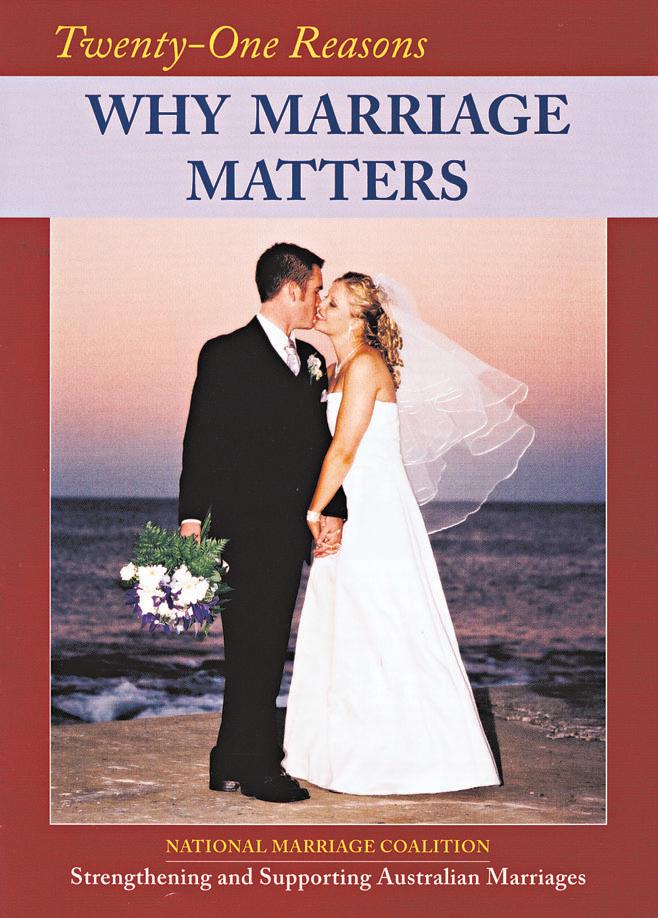
Page 12 October 27 2005, The Record
15.
Children whose parents divorce have higher rates of psychological distress and mental illness. The Record is publishing all 21 reasons. However, if you can’t wait, Twenty-One Reasons Why Marriage Matters by the National Marriage Coalition is available from us for just $5 plus postage and handling. Contact Eugene on (08) 9227 7080 or e-mail administration@therecord.com.au
Reason Fifteen WhyMarriageMatters...
THE SQUIRE AND THE SCROLL AND THE PRINCESS AND THE KISS
Beautifully illustrated in classic fairy-tale style, Bishop’s storybooks offer “his and hers” lessons on the timeless virtues of purity and courage. In her newest, The Squire and the Scroll, a brave young lad fearlessly defends “the lantern of purest light” against all enemies - including a fire-breathing dragon! $20.00 each plus postage OR both for $35 and SAVE! Contact The Record on (08) 9227 7080 or via cathrec@iinet.net.au Available now from The Record!!!




 ■ By Carol Glatz
■ By Carol Glatz








 Pope Benedict XVI
Pope Benedict XVI































 ■ By Pascale Bonnefoy
■ By Pascale Bonnefoy
























 By Jennie Bishop
By Jennie Bishop



